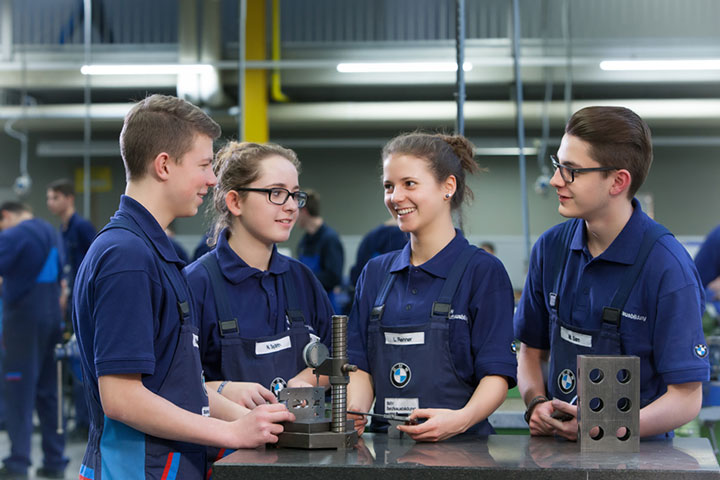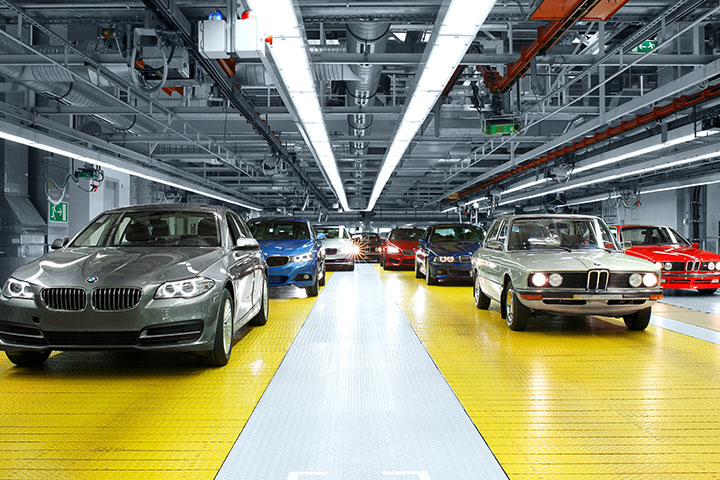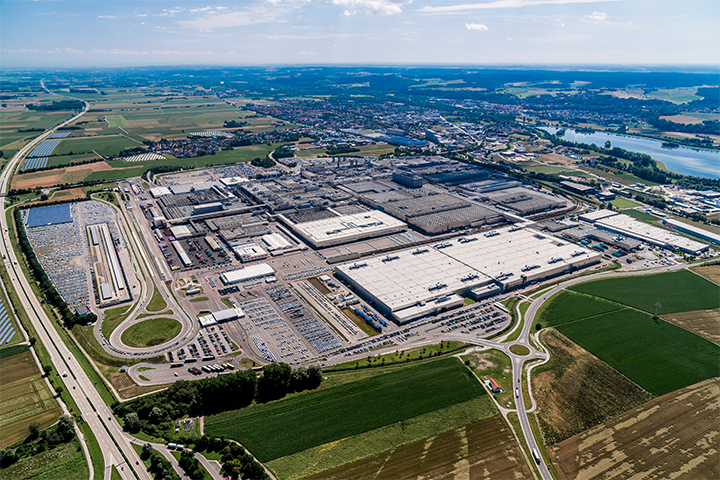Today, BMW Group Plant Dingolfing is one of the BMW Group’s 31 production sites around the globe. The plant’s history began in 1967 when BMW took the first major steps beyond the city limits of Munich for its automotive production – the start of an expansion of production capacities that continues to this day.
DINGOLFING – A TOWN WITH A STRONG AUTOMOTIVE TRADITION.
1960s - spirit of optimism in dingolfing.
In 1967, BMW acquires the medium-sized carmaker Hans Glas GmbH based in Dingolfing, a company that had been very successful with its ‘Goggomobil’ after WWII. In its 51st year, BMW thus takes a first step into the rural region of Lower Bavaria to operate an additional production site needed to fulfill the increasing demand.
The initial skepticism of the former Glas staff quickly gives way to a new spirit of optimism: initially, BMW AG transfers the production of aggregates as well as axle, exchange and spare parts to Dingolfing. Over the next few years, the production of axle carriers and guides, levers and shafts, as well as exhaust and brake systems follows. The Goggomobil is discontinued only in 1969; BMW AG takes over a major share of the work contracts of the former staff of Hans Glas GmbH.
- 1967
- 1968
- 1969
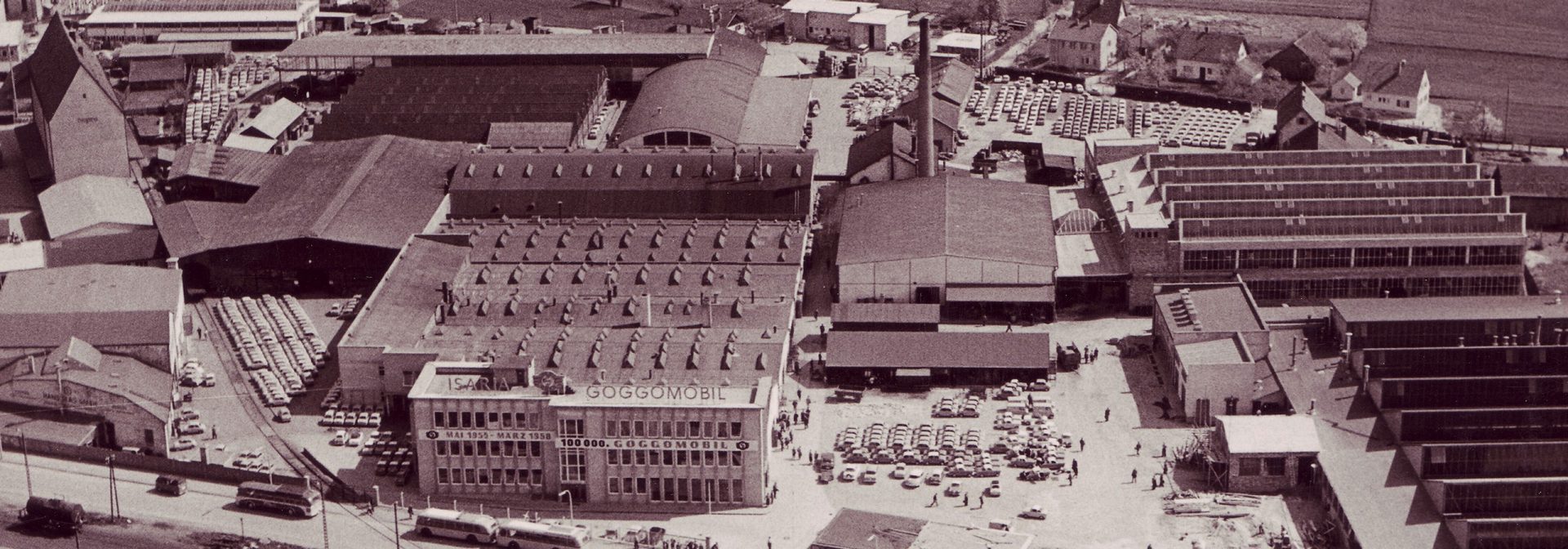
1967
BMW AG Munich acquires the medium-sized carmaker Hans Glas GmbH based in Dingolfing (‘Goggomobil’).

1968
Only a year later, the company starts to transfer parts of the BMW production (e.g. chassis components) to the town in Lower Bavaria. The production of Glas vehicles at the site is gradually tapered out.
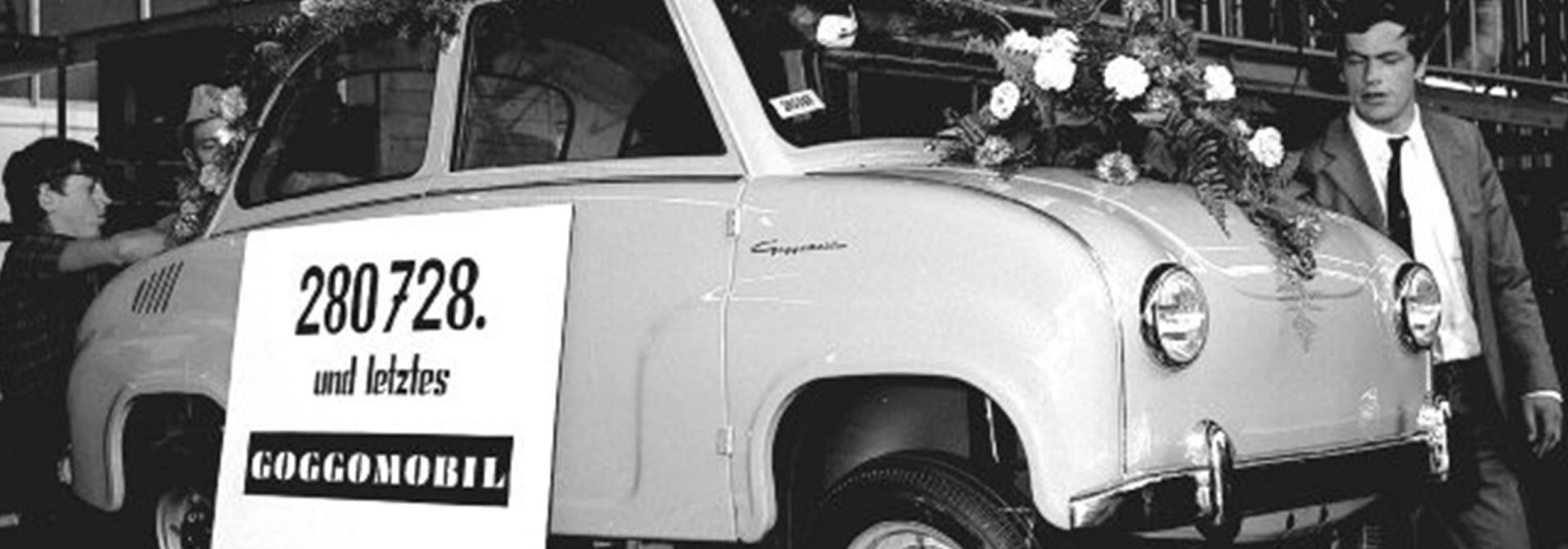
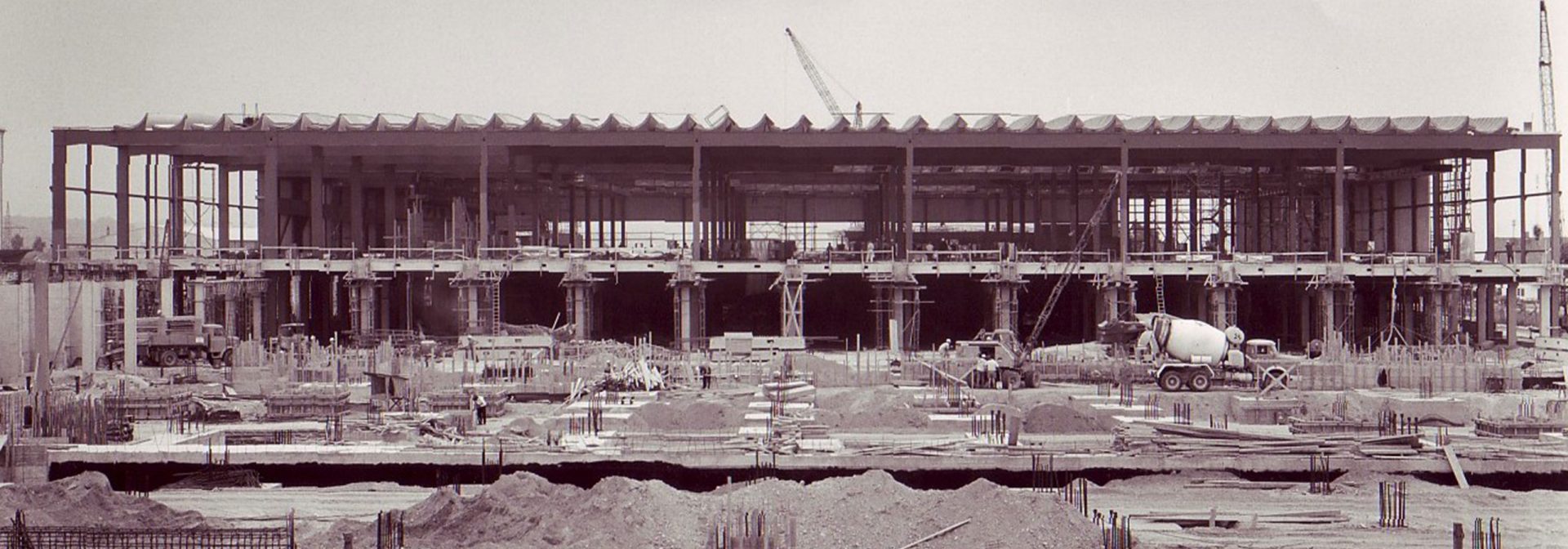
1969
The last Glas vehicle rolls off the assembly line. Another company, Eicher, takes over Glas’s agricultural machinery production.
On July 23, 1969, the company celebrates the topping-out ceremony for BMW Plant 2.2 in Dingolfing. For many years, it served as BMW’s central parts dispatch unit. Nowadays, it is not only a parts warehouse but also a production site of components for the BMW Group’s plug-in hybrid models.
1970s - new plant on greenfield site.
Everybody is thrilled when in November 1970 then-Bavarian State Governor Alfons Goppel lays the foundation stone for the new BMW vehicle plant 2.4 in Dingolfing: following the discontinuation of the Goggomobil, cars will be built again in Dingolfing. Less than three years later, on September 27, 1973, the first BMW made in Dingolfing rolls off the assembly line at the new hall. It is a red BMW 520 of the first BMW 5 Series generation.
With the BMW 6 and 7 Series joining Dingolfing’s production program from 1977 onward, the site continues to grow: a new press shop is set up in former Eicher factory buildings in 1972; in 1978, the groundbreaking ceremony for the new administration building takes place and a new high-bay storage facility at Plant 2.2 (central parts delivery) is commissioned.
In 1975, the site reached the magic mark of 100,000 BMW cars produced. At the end of the decade, Dingolfing can already look back at half a million vehicles made.
- 1970
- 1972
- 1973
- 1974
- 1975
- 1976
- 1977
- 1978
- 1979
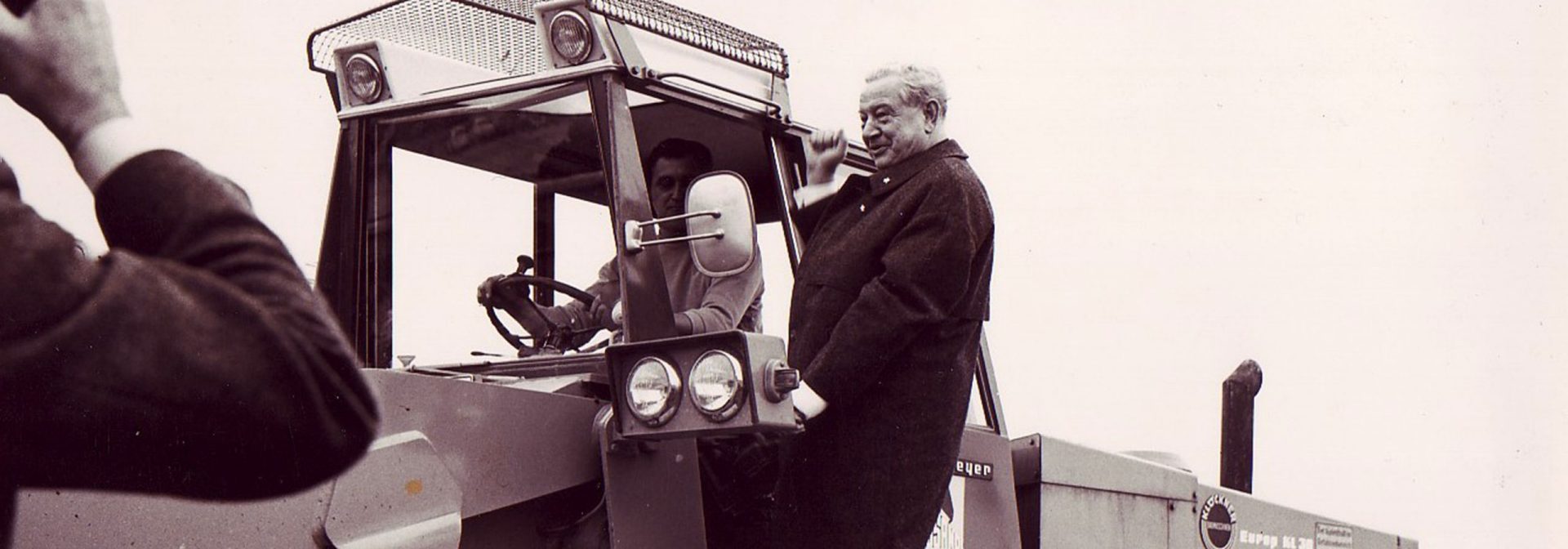
1970
BMW decides to set up a completely new automotive plant at a greenfield site in Dingolfing. Then-Bavarian State Governor Dr. Alfons Goppel turns the first sod oat the groundbreaking ceremony for the new facility, named Plant 2.4.
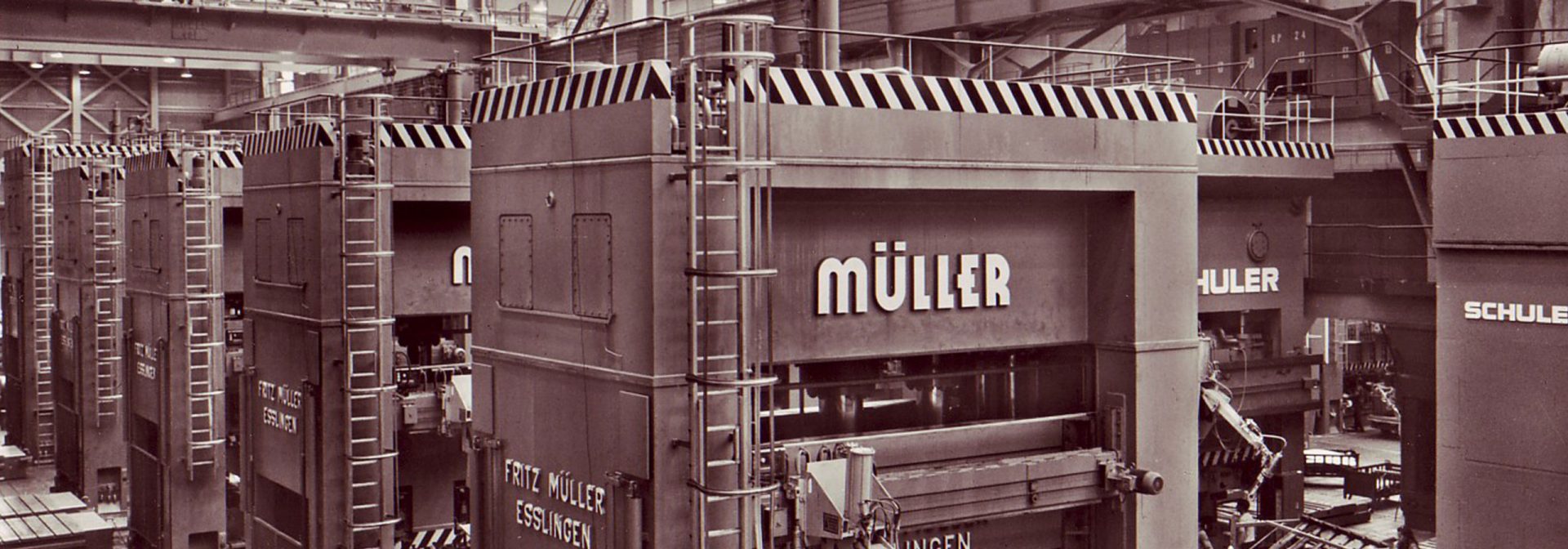
1972
BMW acquires the Eicher factory buildings in Dingolfing. The first press lines start operating at the new press shop.

1973
At the new vehicle plant, the first BMW car made in Dingolfing rolls off the assembly line. It is a vehicle of the brand-new first generation of the BMW 5 Series.
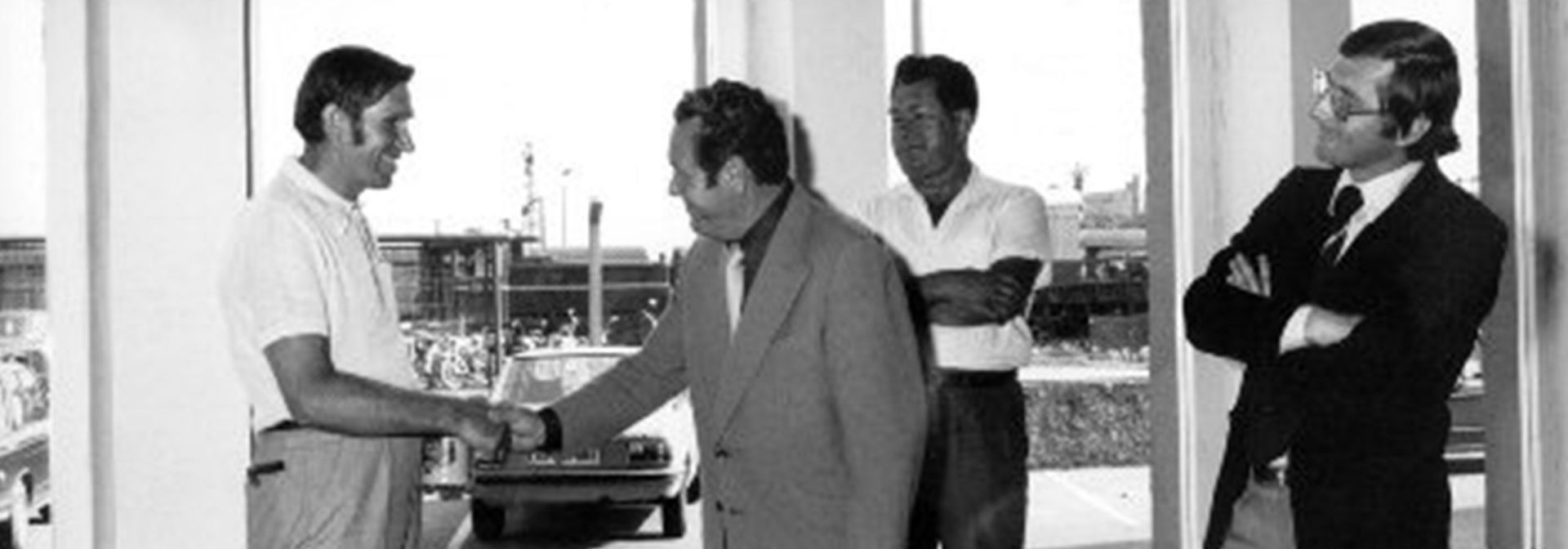
1974
Production swiftly increases to 100 cars daily; the workforce rises to 6,300 people. Step by step, the commuter belt of the Dingolfing plant expands to comprise all of eastern Bavaria. The initiative ‘Jupp, come to Bavaria!’ is launched to recruit workers from the Ruhr region to attract much needed skilled labor.
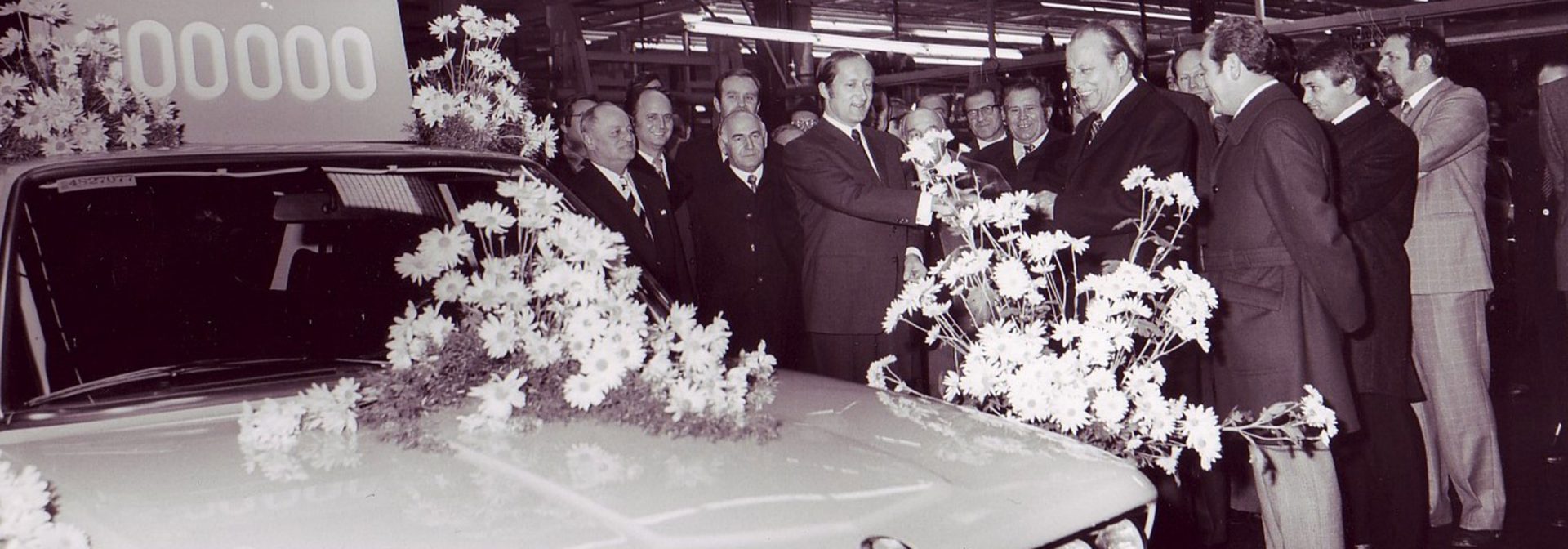
1975
The total volume of BMW cars made in Dingolfing reaches 100,000.
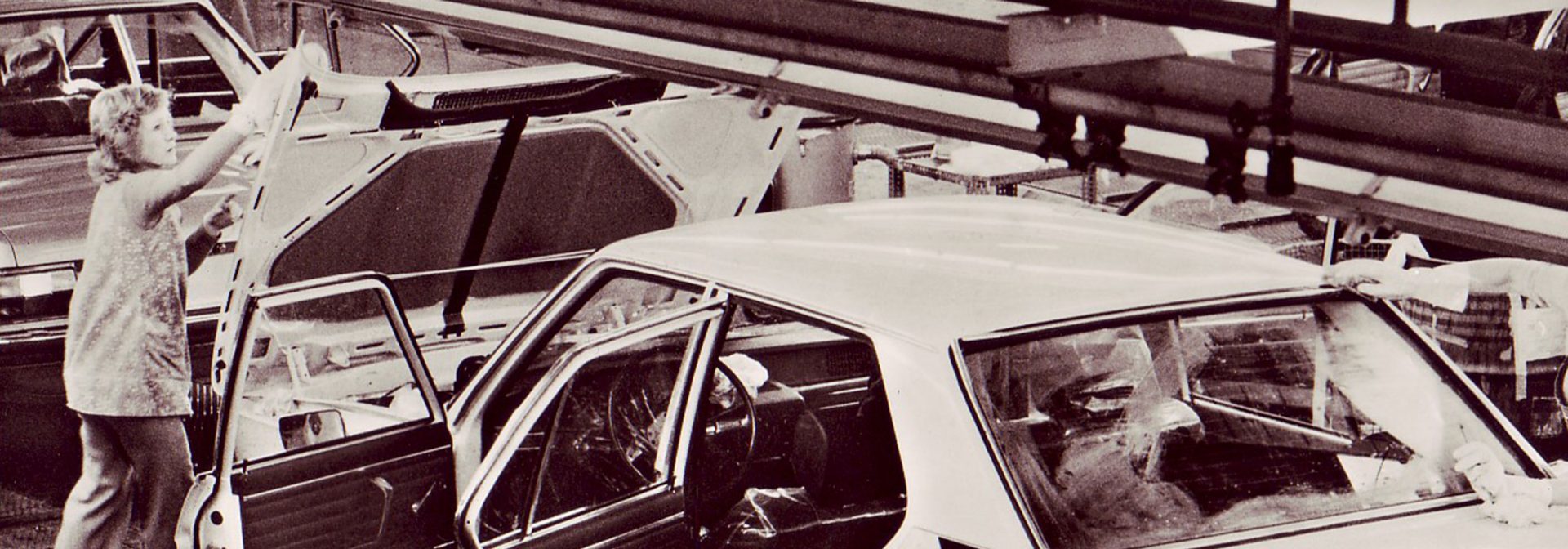
1976
Daily production increases to 360 units. Assembly and body shop require the first capacity expansions.
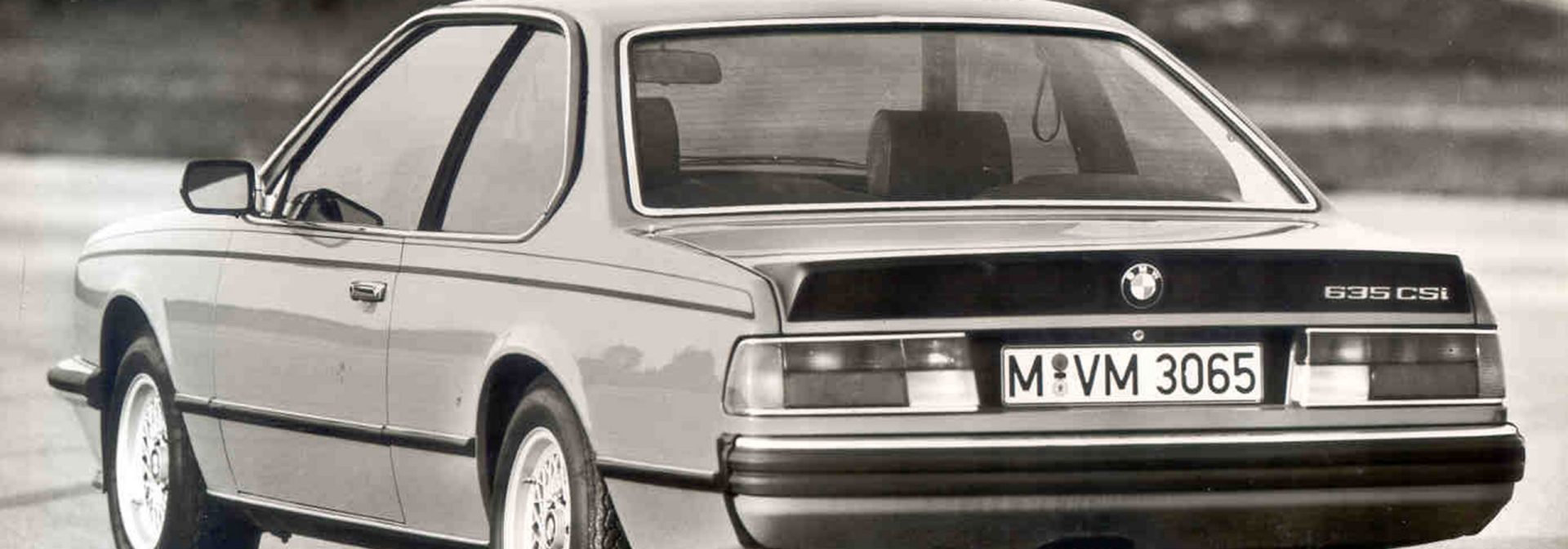
1977
Time for the first extension of Dingolfing’s production program: in addition to the 5 Series, the now largest BMW production plant successfully launches the production of the 6 and 7 Series.
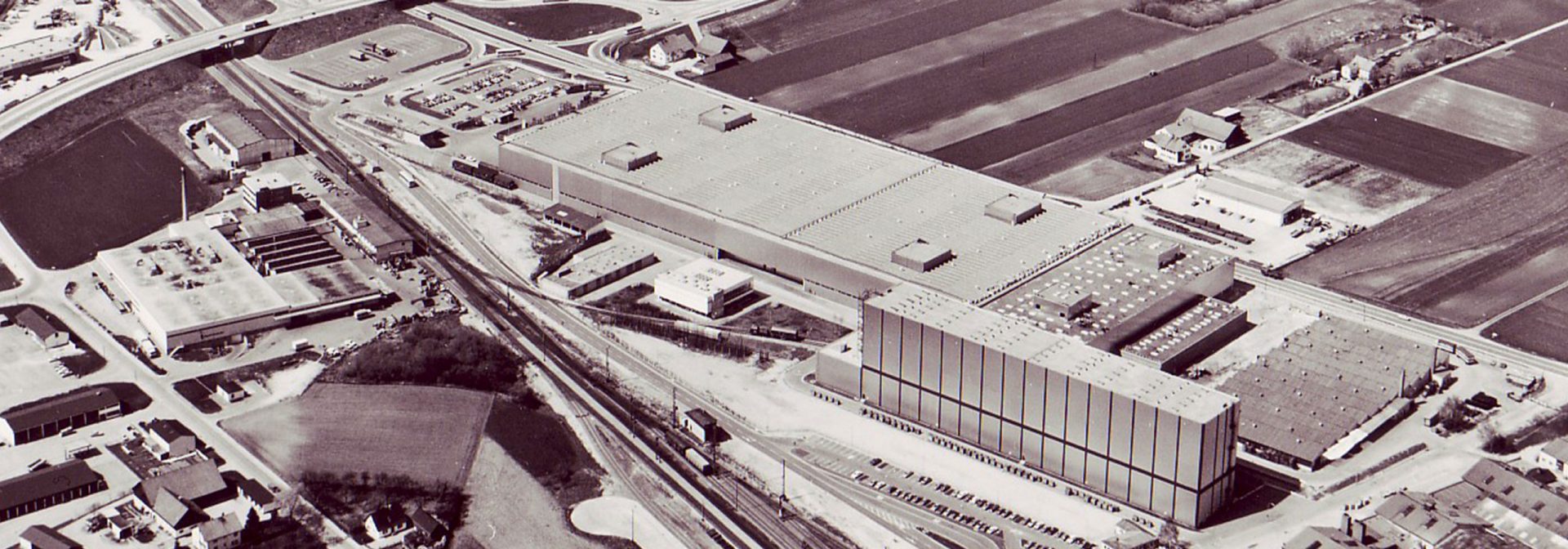
1978
The Dingolfing site continues to grow with the groundbreaking ceremony for the new administration building and the commissioning of a new high-bay storage facility at Plant 2.2 (central parts delivery).
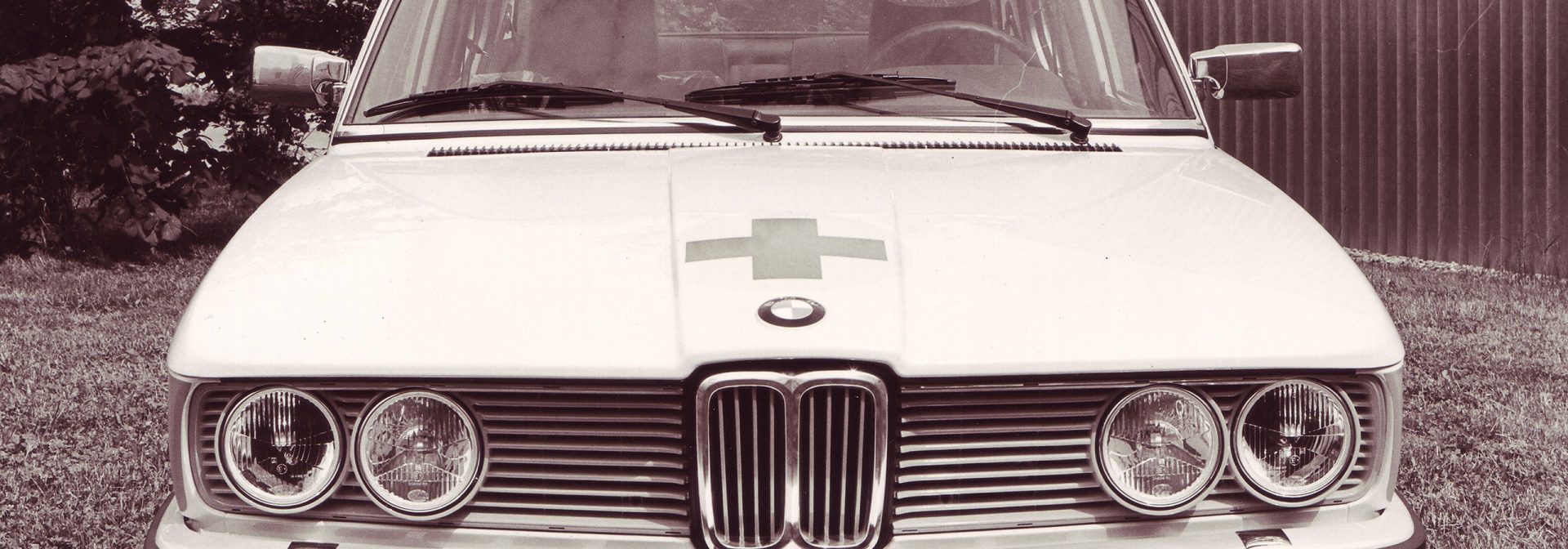
1979
The company celebrates the first half million BMW cars made in Dingolfing.
1980s - On route to becoming the most flexible plantin the world.
In the 1980s, BMW’s Dingolfing takes a huge leap forward: at the beginning of the decade, the popular BMW 3 Series joins the production lineup. The site thus already has a model variety unrivalled in the automotive industry.
To satisfy the growing demand for BMW cars made in Dingolfing, a second assembly hall, Hall 52, is commissioned in 1981. One year later, in 1982, the magic mark of one million vehicles produced is passed; only five years later, the plant celebrates five million vehicles produced.
Besides the wide product range, the 1980s at Plant Dingolfing are characterized by innovations in products and production processes. In 1983, the BMW 524td as the first BMW car with a diesel engine rolls off the assembly line. In the second-generation BMW 7 Series and the new BMW 8 Series, which continues the tradition of large BMW coupes from 1989 onward, the first 12-cylinder engines are fitted. Innovations in the production process, such as pre-assemblies and the introduction of tilt assembly, ensure efficient workflows and ergonomic improvements for the workers. The site’s headcount increases to over 20,000 staff by the end of the 1980s.
- 1980
- 1981
- 1982
- 1983
- 1985
- 1986
- 1987
- 1988
- 1989
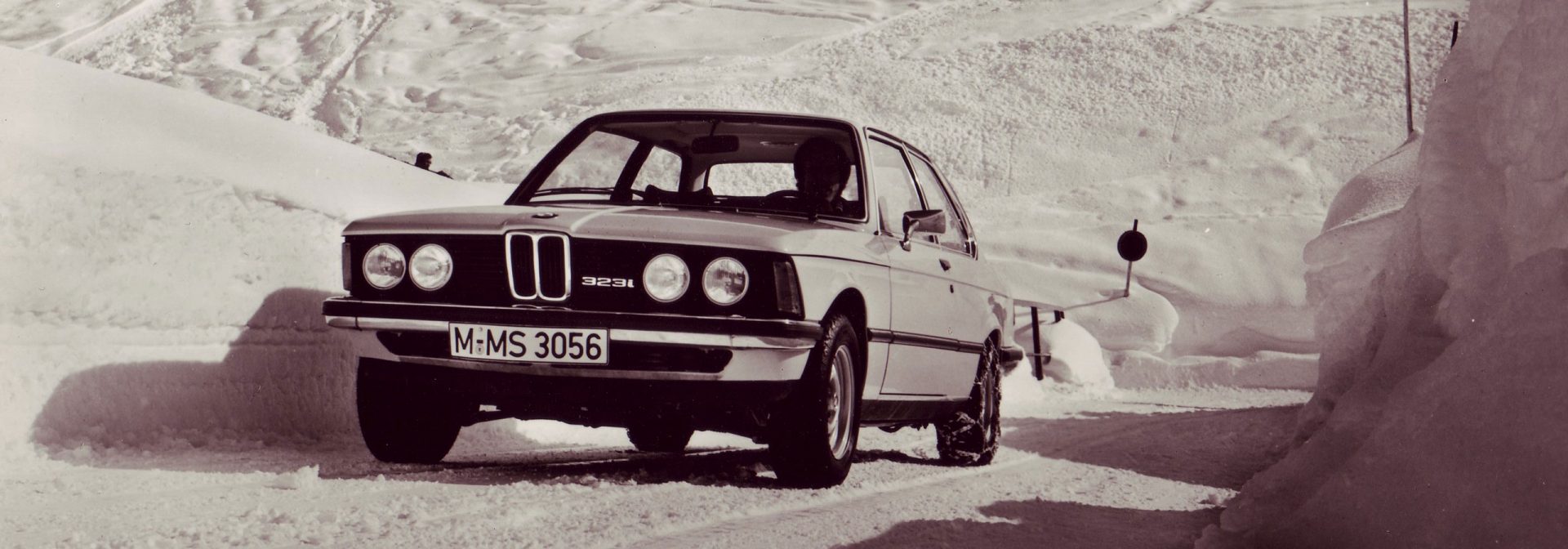
1980
Models of the smaller 3 Series are added to the Dingolfing plant’s production program. The new administration building is inaugurated.
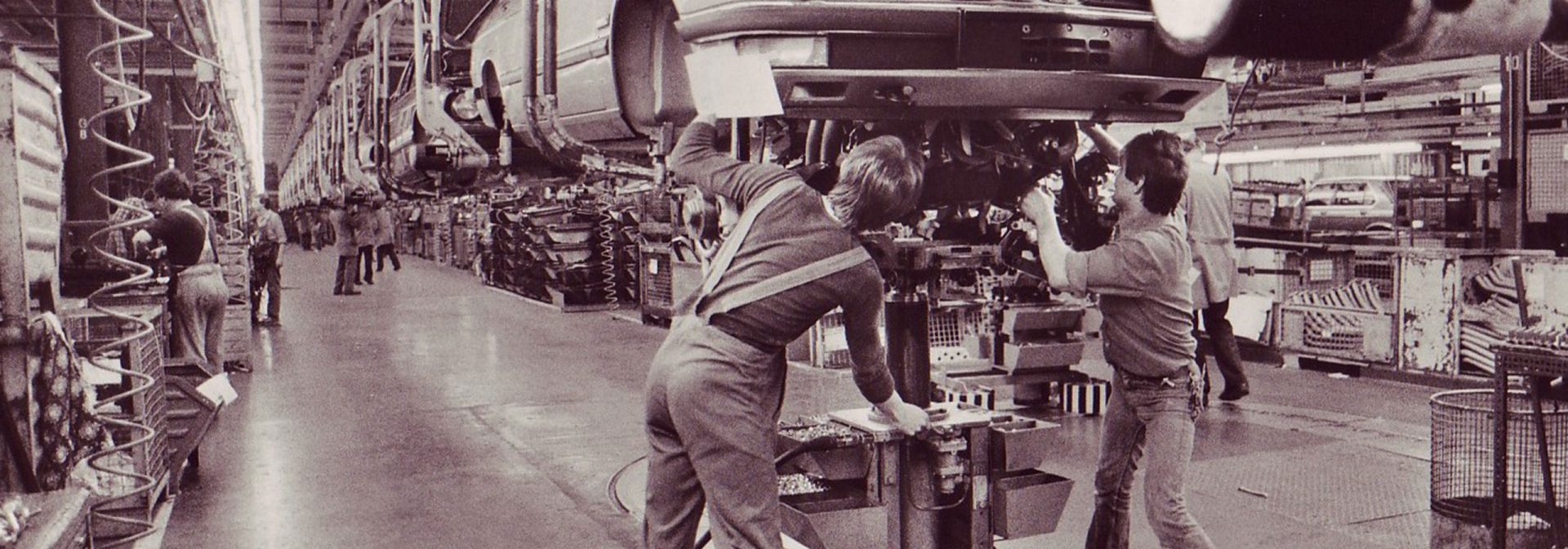
1981
The second generation of the 5 Series is launched; 566,070 units of the previous generation were manufactured in Dingolfing.

1982
Production in Dingolfing passes the magic mark of one million vehicles produced.
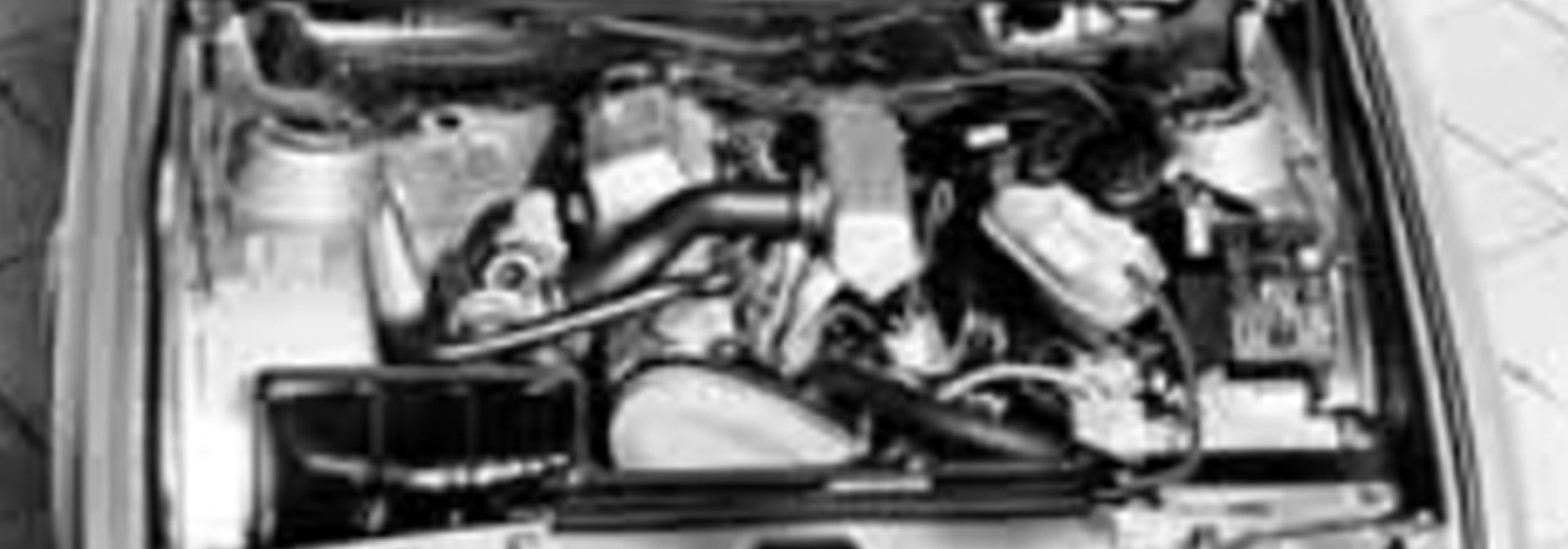
1983
A premiere: the first BMW with a diesel engine (524 td) rolls off the assembly line.

1985
Production in Dingolfing hits the 1.5 million mark.
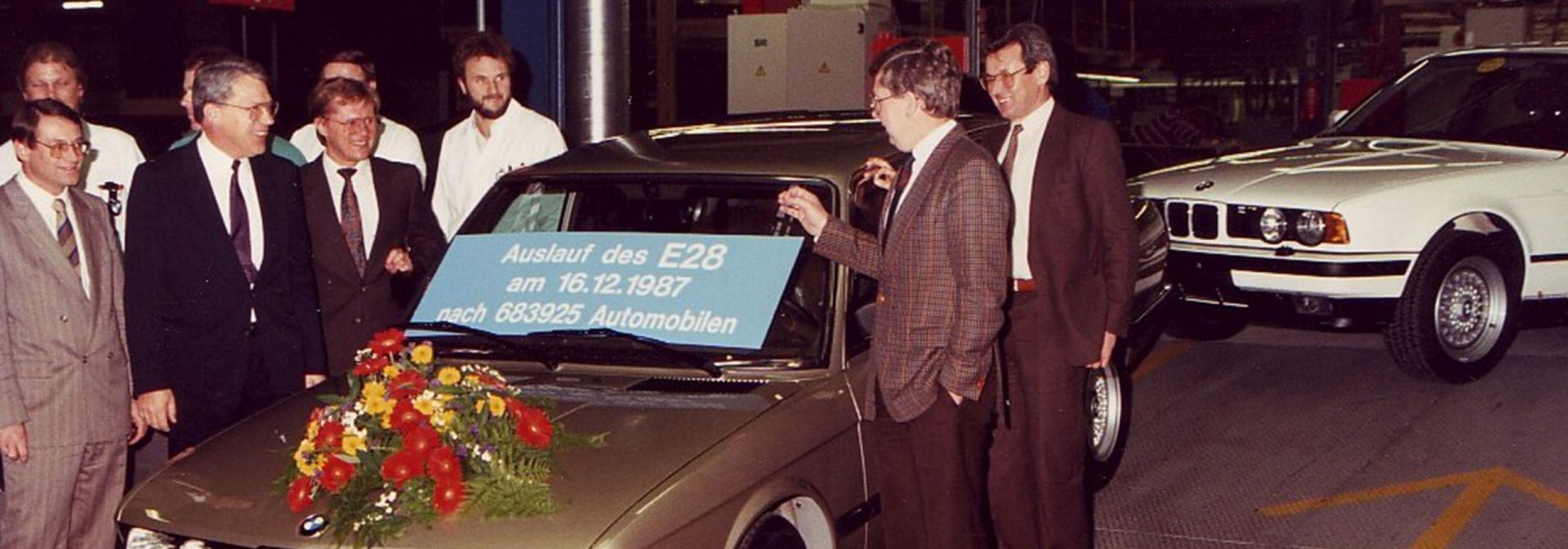
1986
The year witnesses the market launch of the new 7 Series, the company’s flagship.
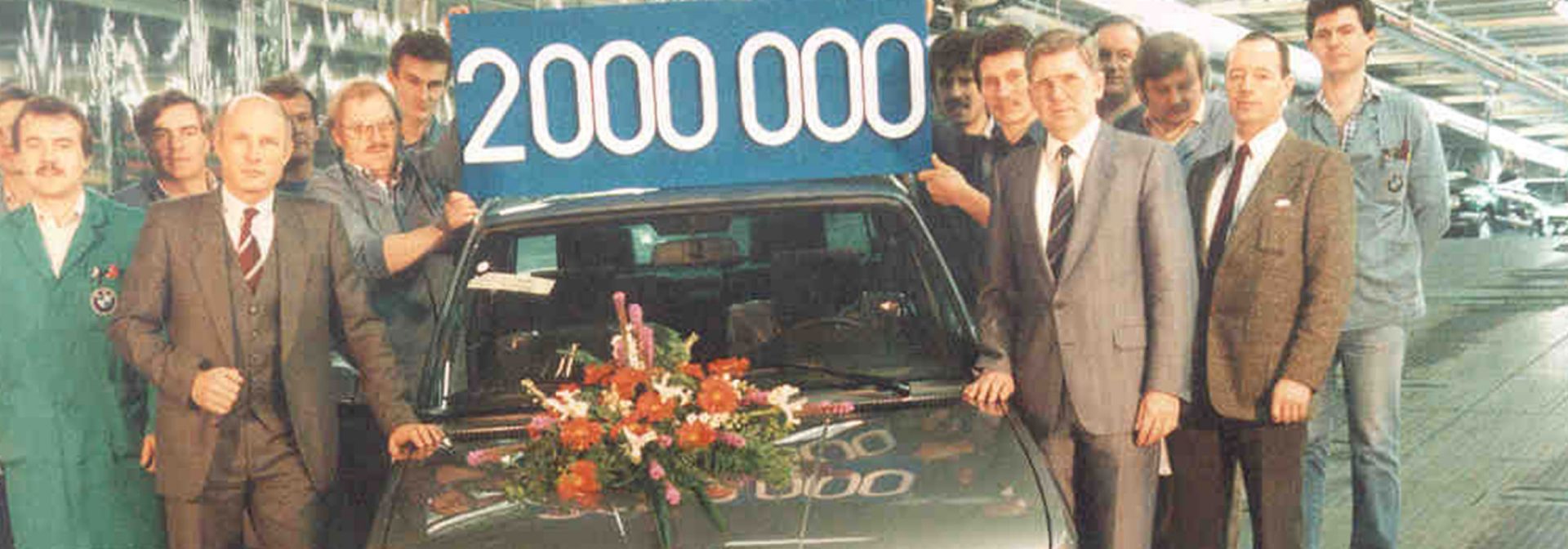
1987
As a first, the new BMW 7 Series is fitted with 12-cylinder engines. In all, the number of cars made in Dingolfing reaches two millions – a mere five years after the first million.

1988
The already third generation of the 5 Series replaces the predecessor model. The headcount at the site reaches approx. 20,000.
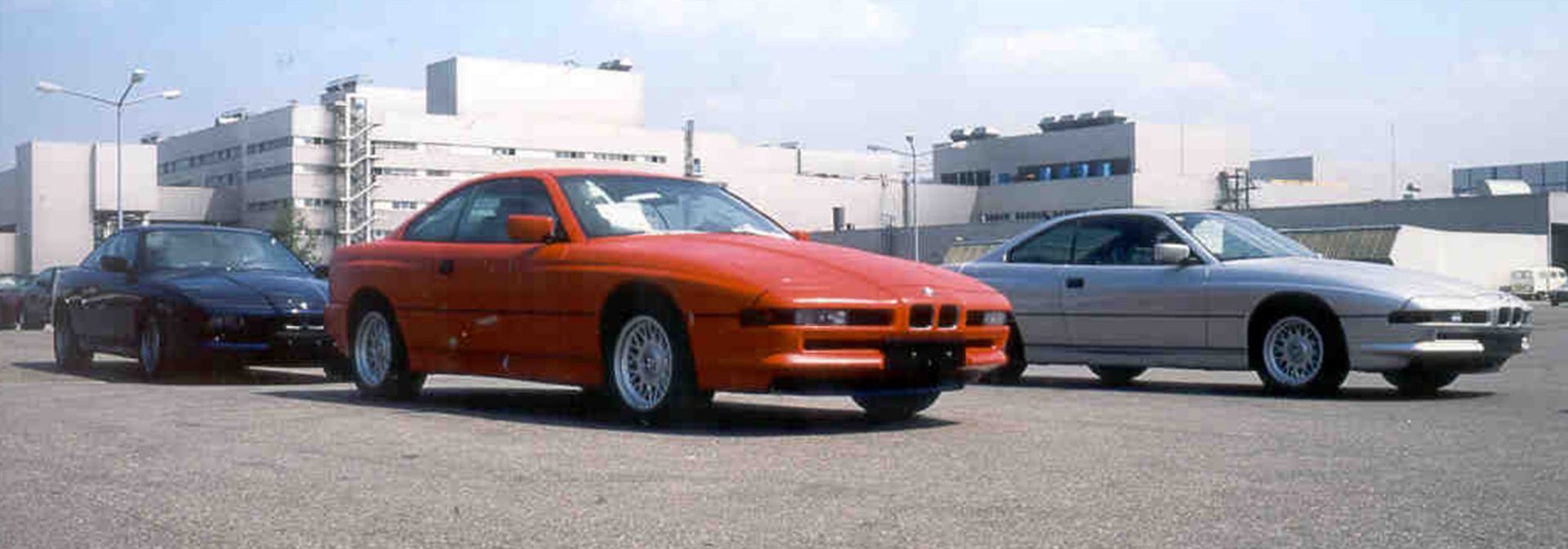
1989
Following the 3, 5, 6 and 7 Series, Dingolfing starts production of the 8 Series, in the form of the 850i Coupe. The plant demonstrates a model variety and flexibility unparalleled in the automotive industry. Only ten years later, in mid-1999, the production of the 8 Series is discontinued.
1990s - taking on the best in the world.
Production output continues to rise through the 1990s: the BMW production in Dingolfing reaches three million vehicles in 1991 and four million only five years later.
The middle of the decade is marked by important model changes: 1994 sees the launch of the third-generation BMW 7 Series and 1995 the launch of the fourth-generation BMW 5 Series, Dingolfing’s high-volume model. At the end of the decade, the BMW 8 Series is discontinued after 10 years and more than 30,000 vehicles produced. In turn, the production of the Z8 begins. The luxury roadster is assembled in Munich, but due to its strong aluminum expertise Dingolfing delivers the respective car bodies.
Over the course of the 1990s, Dingolfing receives several awards to honor the site’s high quality standards. In 1992, the component plant 2.1 is voted ‘Factory of the Year’; one year later, the vehicle plant receives the Bavarian Quality Award. Awards by the renowned U.S. market researcher J.D. Power follow in 1995, 1998 and 1999. J.D. Power infers the quality rating of automotive factories from customers’ satisfaction with new vehicles. In 1988, Plant Dingolfing is honored for its outstanding product quality with the Platinum Plant Award as the ‘World’s Best Automotive Factory’.
Milestones in production are the introduction of the both innovative and environmentally friendly powder-based paint technology in the paint shop in 1997 and the commissioning of the world’s largest suction bar transfer press in 1999.
- 1990
- 1991
- 1992
- 1993
- 1994
- 1995
- 1996
- 1998
- 1999
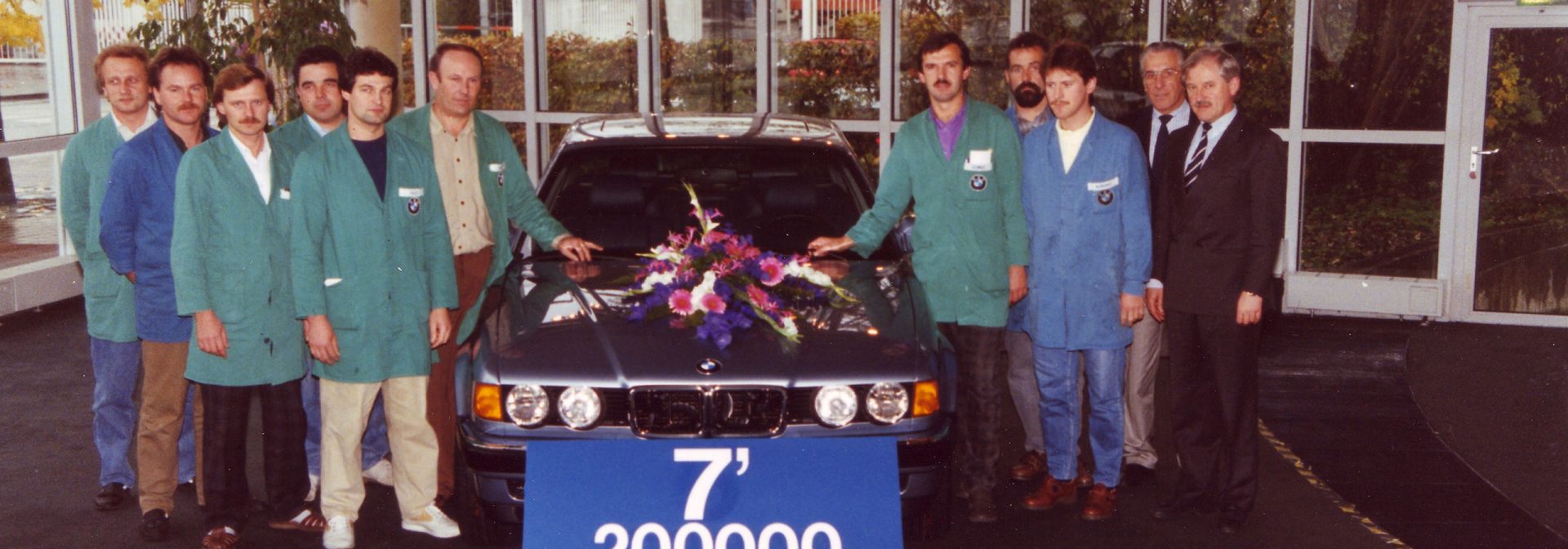
1990
The plant produces the 200,000th vehicle of the BMW 7 Series.

1991
BMW production in Dingolfing grows to a total of three million cars.
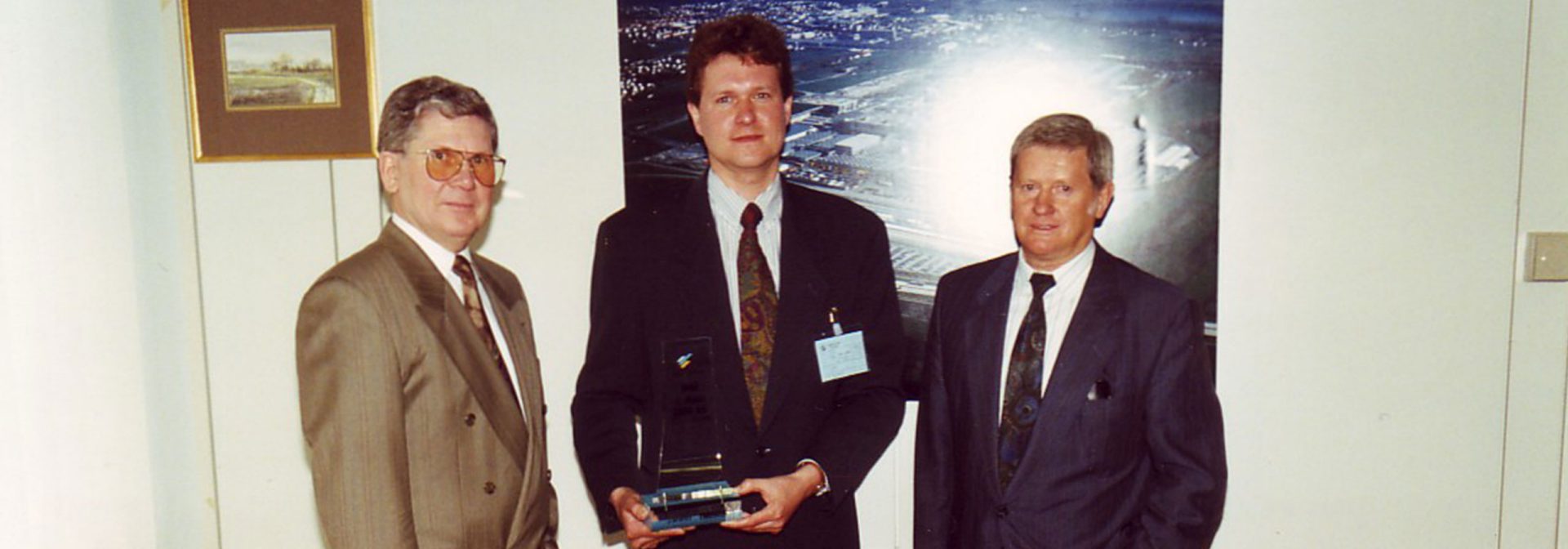
1992
Time to celebrate: the company and the region celebrate the 25th anniversary of BMW Dingolfing. The site’s Plant 2.1, where the engine and chassis unit produces front and rear axles for all BMW cars worldwide, is voted ‘Factory of the Year’ from among 400 applicants.
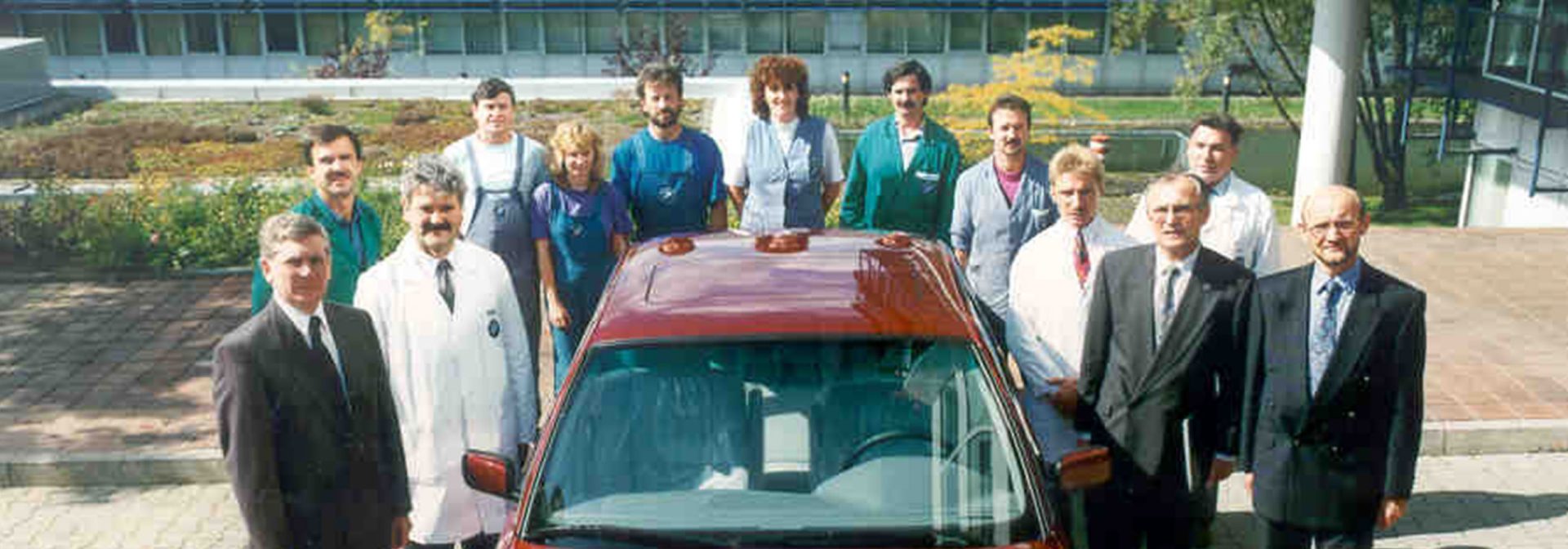
1993
The one-millionth BMW 5 Series car is produced.
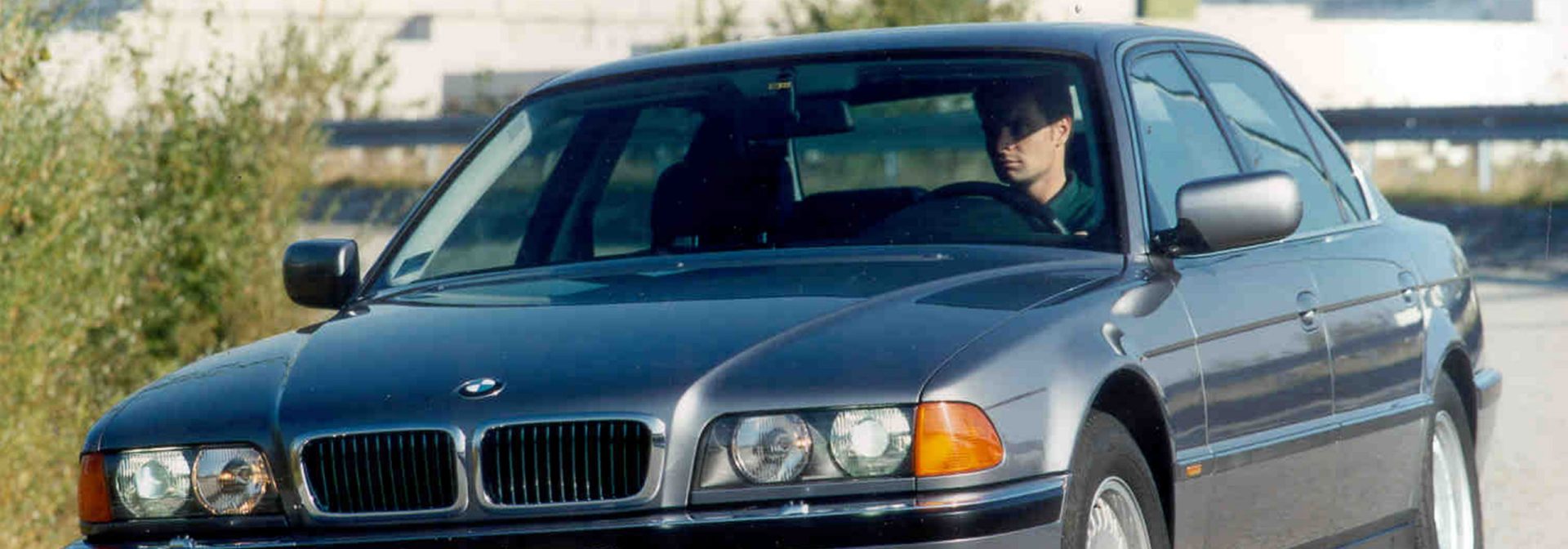
1994
Model change for the BMW 7 Series: the third generation goes into production. On top of that, the site invests in the plant infrastructure, establishing new spaces for the staff cafeteria and the company health insurance fund.
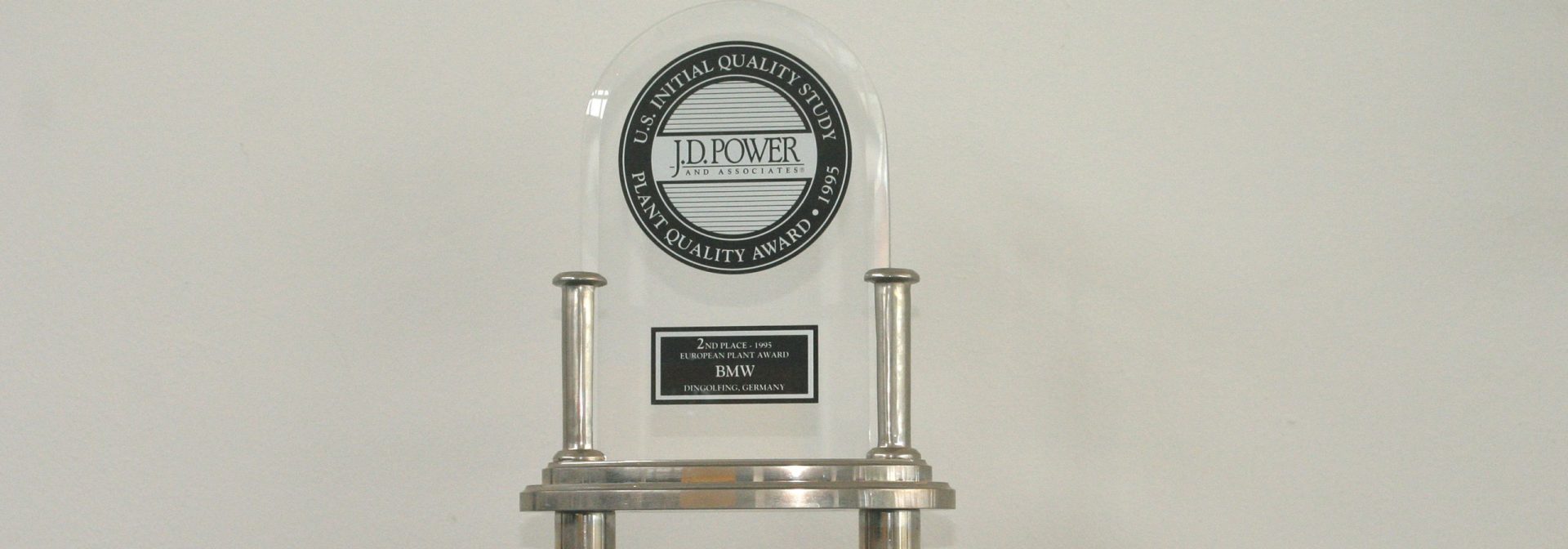
1995
The fourth generation of the BMW 5 Series is launched. As a first, Dingolfing receives an award (the Silver Award) by U.S. market research institute J.D. Power.
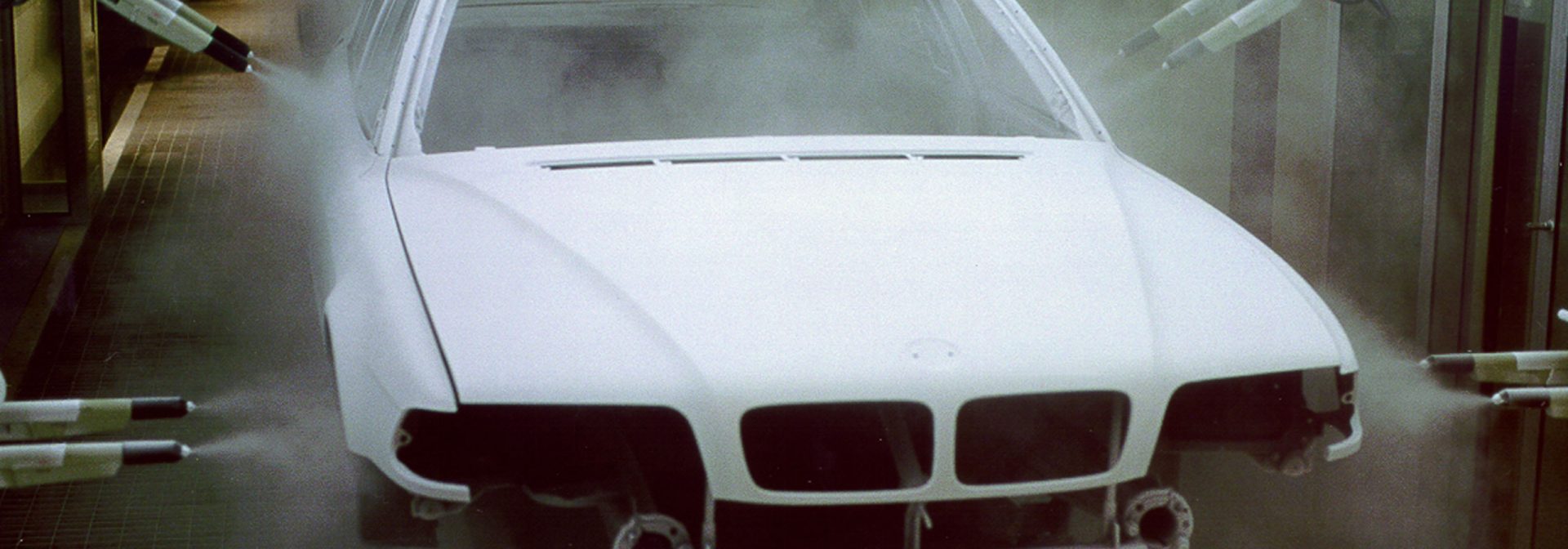
1996
Dingolfing commissions a new paint shop. One year later, this paint shop is the first worldwide to introduce the resource-conserving and eco-friendly powder-based paint technology in series application. The magic mark of four million BMW cars produced is reached.
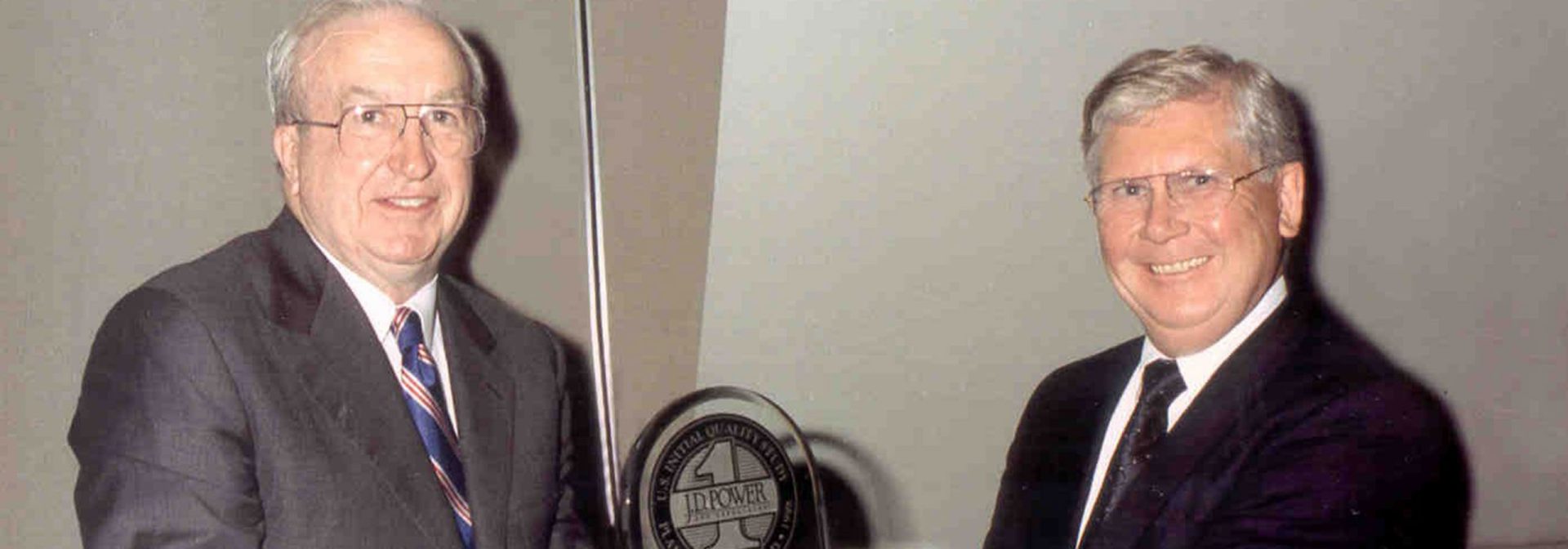
1998
Top honor: Plant Dingolfing receives J.D. Power’s Platinum Plant Award – as the world’s best car factory.
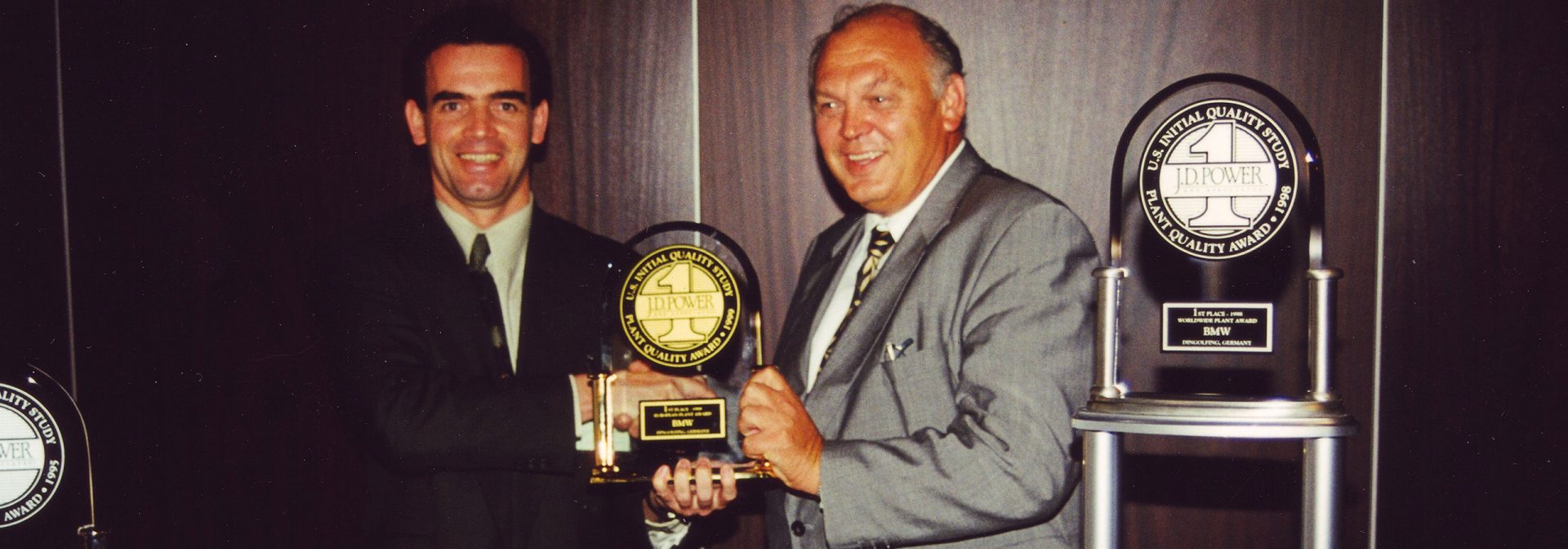
1999
Once again, J.D. Power bestows a Golden Plant Award upon Dingolfing as Europe’s best car factory, recognizing the site’s outstanding delivery quality.
2000s - beginning of a new era.
The new millennium begins with an anniversary: in February 2000, the five-millionth BMW made in Dingolfing rolls off the assembly line. Also, the early 2000s at the site are characterized by a strong spirit of optimism: the plant receives significant investments to prepare for the BMW Group’s major market and product initiative. A new training and development center, a service building at Plant 2.1 as well as the new production structures for the upcoming model generations are set up. 2001 sees the production launch of the new BMW 7 Series with the innovative iDrive user concept plus the new Rolls-Royce Phantom, for which Dingolfing as the expert plant for aluminum provides the car bodies. In 2003, the new BMW 5 Series and the brand-new 6 Series Coupe are launched, to be followed a year later by the convertible variant. In the same year, then-Bavarian State Governor Edmund Stoiber visits the plant to celebrate its 30th anniversary together with the BMW workforce. Two years later, he inaugurates the large new Dynamics Center, which replaces Plant 2.2 as the heart of BMW’s spare parts logistics.
In 2007, it’s time to celebrate 40 years of BMW in Lower Bavaria and seven million BMW cars made in Dingolfing. The next generation of the BMW 7 Series is launched in 2008, a new BMW 5 Series variant, the BMW 5 Series Gran Turismo, one year later. Again, Plant Dingolfing is honored repeatedly with J.D. Power Awards for its delivery quality all throughout the decade.
Toward the end of the 2000s, the global financial crisis affects the car markets and thus also Plant Dingolfing. Production output drops significantly in 2009, to below 200,000 vehicles per annum. For a brief period, the plant introduces reduced working hours.
- 2000
- 2001
- 2002
- 2003
- 2004
- 2005
- 2006
- 2007
- 2008
- 2009

2000
Anniversary: the five-millionth BMW rolls off the Dingolfing assembly line in February. In September, the site’s new central Training and Development Center opens. Plant Dingolfing again performs excellently in the J.D. Power assessment, ranking third overall.
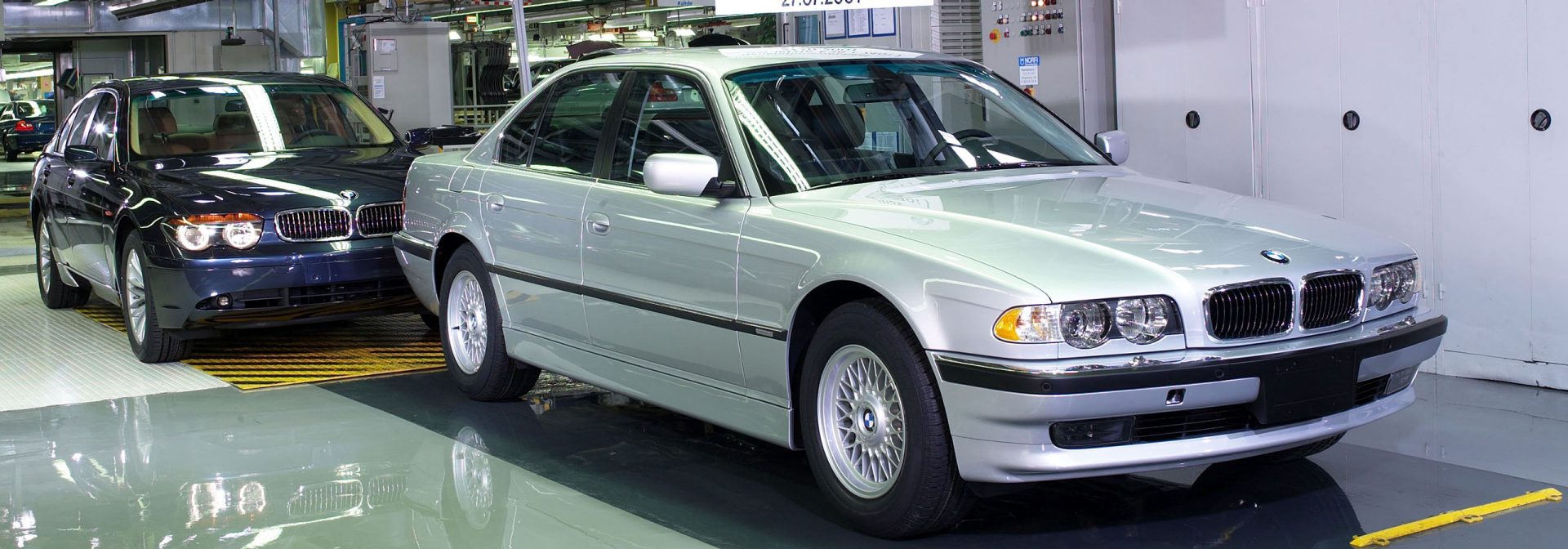
2001
The fourth generation of the BMW 7 Series goes into series production. Just like in the previous year, the plant wins the J.D. Power Bronze Plant Award.

2002
The new service building at Plant 2.1 is inaugurated. The 5 Series celebrates its 30th anniversary.
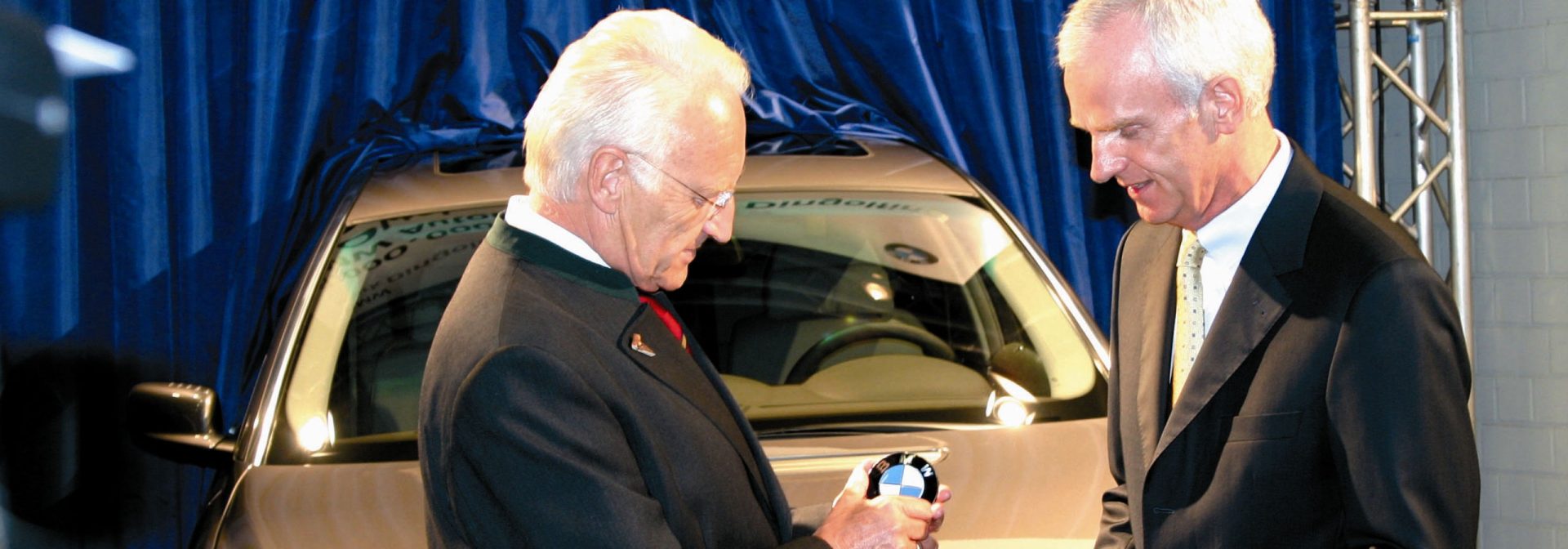
2003
Someone’s got to take the lead: The new BMW 5 Series is launched, followed shortly after by the comeback of the BMW 6 Series Coupe. The site celebrates 30 years of BMW automotive production and the six-millionth BMW made in Dingolfing.
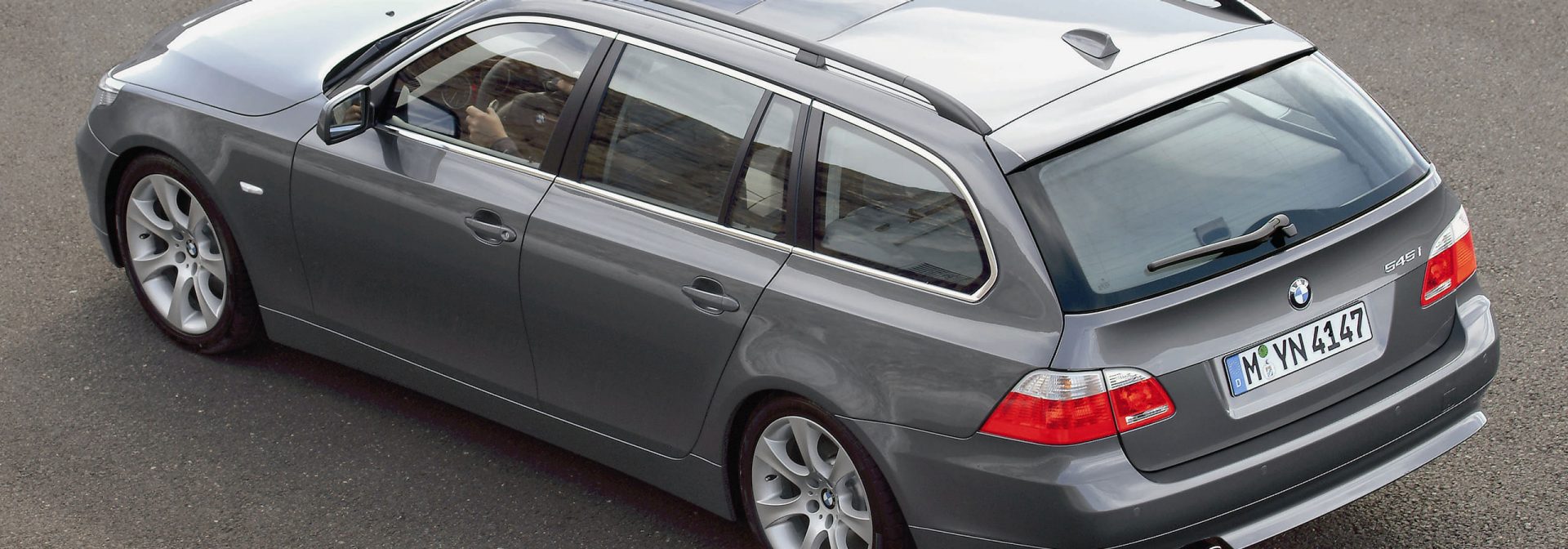
2004
The new BMW 5 Series Touring is launched. At over 300,000 units, Plant Dingolfing achieves the highest annual production output in its history.

2005
In May, Plant Dingolfing produces its 6.5-millionth BMW car since the start of production in September 1973. The Central Parts Delivery Center (ZTA) in Dingolfing is expanded; the new Dynamics Center takes up operations in June.
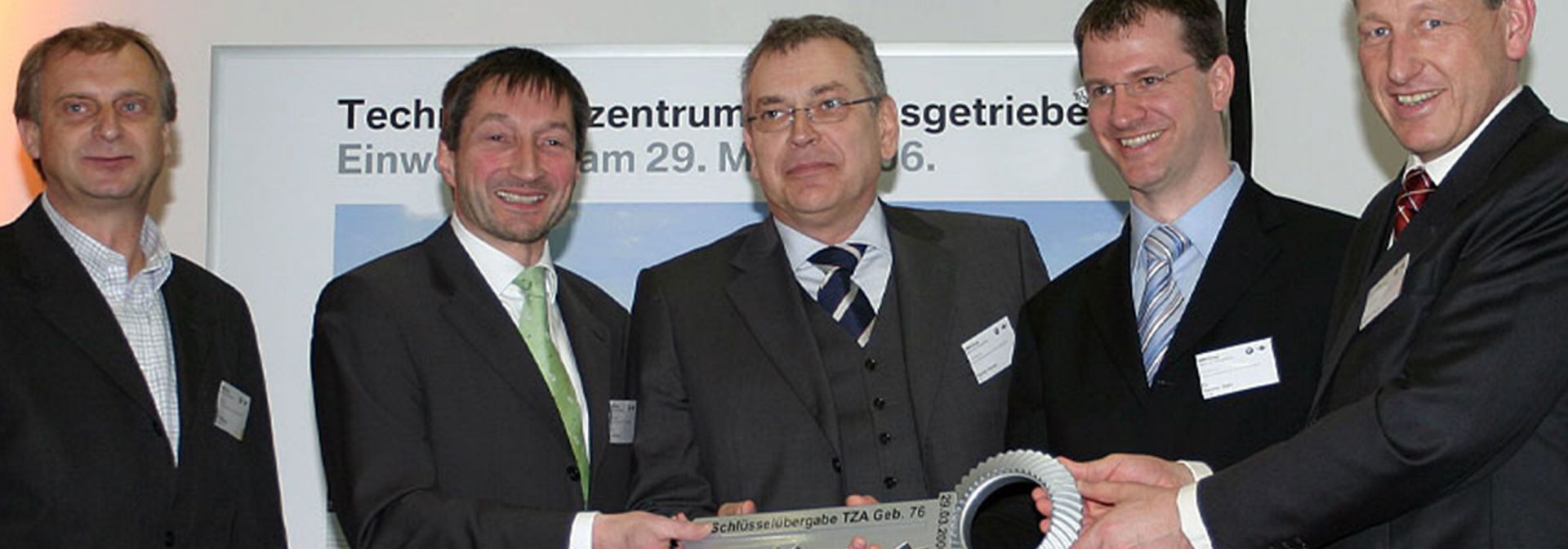
2006
The new technology center for axle differentials at Plant 2.1 is commissioned in March. Dingolfing receives the J.D. Power Silver Plant Award in October.

2007
Anniversary in January: The site celebrates 40 years of BMW in Lower Bavaria. In March, Plant Dingolfing produces its seven-millionth vehicle.
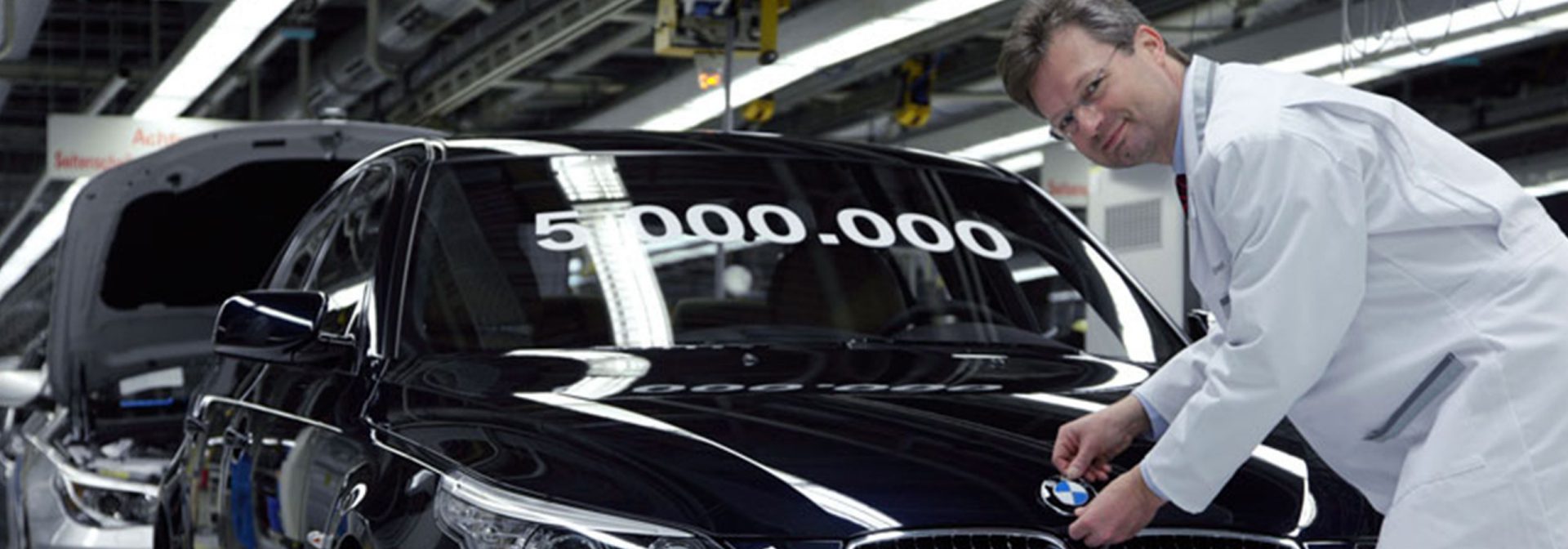
2008
By January, Plant Dingolfing has manufactured a total of five million BMW 5 Series vehicles since the start of production in September 1973. The fifth generation of the BMW 7 Series is launched.

2009
The new press hardening facility is commissioned. Dingolfing starts to produce the BMW 5 Series Gran Turismo. The plant receives the J. D. Power Silver Plant Award.
2010s - new models, new technologies.
Following the economic crisis of the late 2000s, the recovery begins as early as 2010. The new, highly successful next generation of the BMW 5 Series is launched, to be followed by the new 6 Series one year later. Production output increases, reaching new record highs over the next few years. In 2014, for instance, Dingolfing builds almost 370,000 cars – also thanks to another expansion of the plant’s model lineup. Following a break of over ten years, 2013 sees the return of the 3 Series to the site, in the form of the BMW 3 Series Gran Turismo. From 2014 on, Dingolfing also manufactures the BMW 4 Series Gran Coupe, taking the total up to 5 model series and 15 different variants.
In late 2012, a major, multi-year plant expansion begins. With the so-called ‘westward expansion’ the plant prepares for future model generations and new technologies. Among the new facilities are a new body shop and a new CFRP production. Both are commissioned in 2015, with the launch of the new BMW 7 Series. Surrounding assembly, a new delivery center, a new automated small-parts storage and optimized traffic and material flows ensure that the site can manage the continuously increasing complexity.
With the new BMW 7 Series and its mix of materials – aluminum, steel and CFRP – the BMW Group and Plant Dingolfing set new standards in intelligent lightweight construction. On top of that, the site makes its mark as a center of excellence for the production of electric drive components. Due to the extensive aluminum expertise of Plant 2.1 and its experience in prototyping with alternative drives, the site has been providing Plant Leipzig with high-voltage batteries, electric transmissions and aluminum chasses for the BMW i electric models since 2013. From 2014 onward, construction is under way at Plant 2.2 for a new production facility for electric drives and high-voltage batteries to be fitted in future BMW Group plug-in hybrids.
- 2010
- 2011
- 2012
- 2013
- 2014
- 2015
- 2016
- 2017
- 2018
- 2019
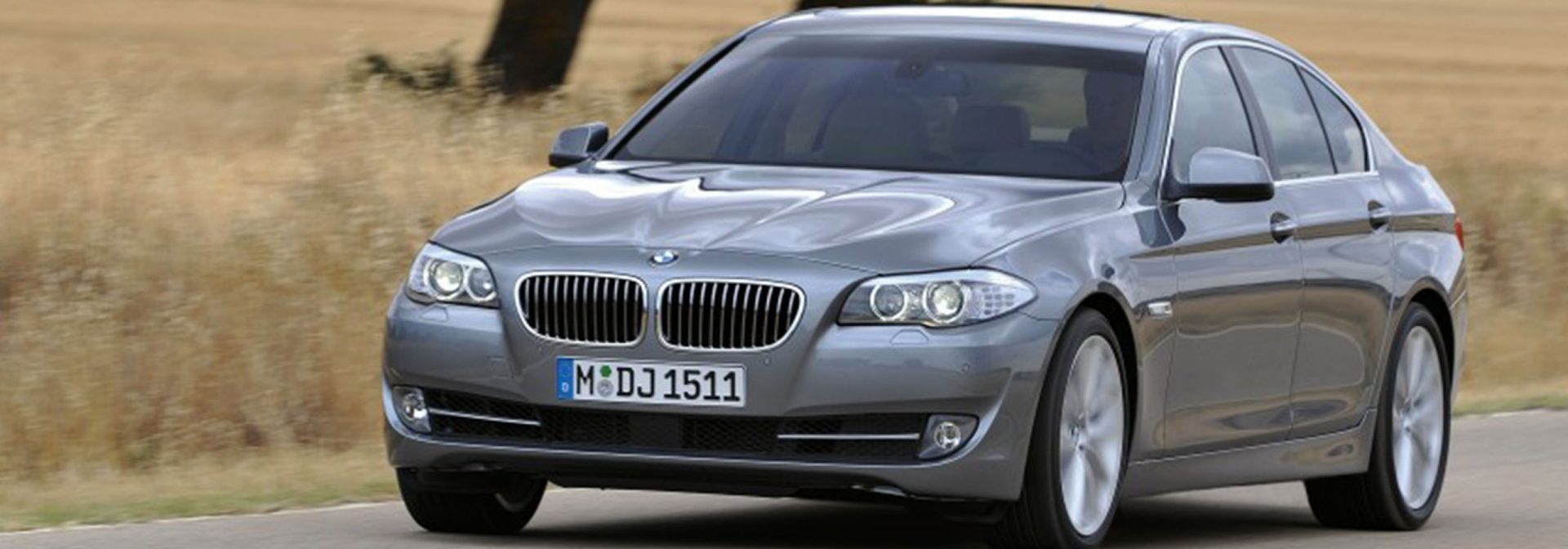
2010
The sixth generation of the BMW 5 Series goes in production.

2011
The third generation of the BMW 6 Series is launched. The vehicle plant celebrates a production anniversary: 8 million BMW cars made in Dingolfing. Plant 2.1 receives the Future Award in the ‘Factory of the Year’ competition for its new axle differential assembly, which meets age-related needs of the workers.
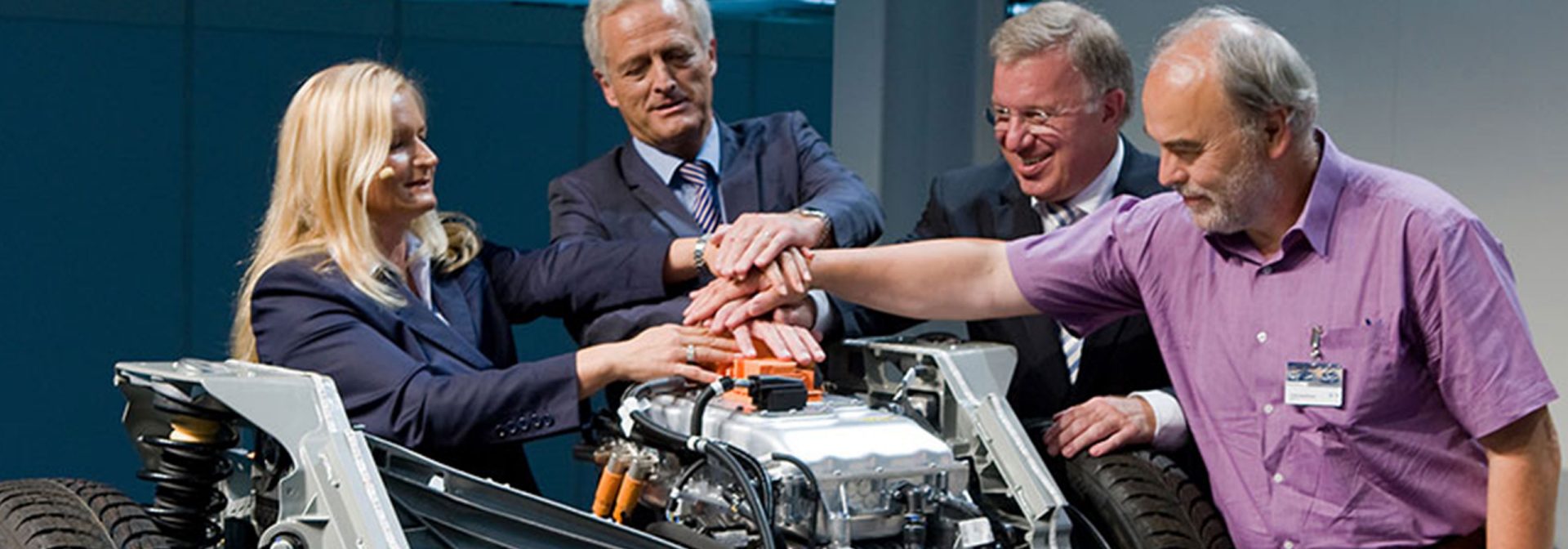
2012
The BMW ActiveHybrid7 and the four-door BMW 6 Series Gran Coupe are launched. The production facility for high-voltage batteries for the BMW i models is symbolically commissioned. The ‘westward expansion’ of vehicle plant 02.40 begins.

2013
Following a ten-year break, another BMW 3 Series model is once again manufactured in Dingolfing, the BMW 3 Series Gran Turismo. Plant 2.1 sees the start of production of components for the BMW i3. The site celebrates 40 years of BMW in Dingolfing.

2014
The nine-millionth BMW made in Dingolfing is handed over to a customer. Production of the new BMW 4 Series Gran Coupe begins.

2015
The sixth-generation of the BMW 7 Series is launched. J.D. Power votes BMW Group Plant Dingolfing to be Europe’s best car factory.
2016
Go-Live of new spare parts distribution centers at Bruckberg and Wallersdorf. Launch of new BMW 5 Series Sedan and BMW 740e iPerformance.
2017
50th anniversary of BMW Group Plants Dingolfing and Landshut, 10 million BMW cars from Dingolfing production. Plant Dingolfing wins J.D. Power Plant Award.
2018
The new BMW 8 Series is launched: the BMW 8 Series Coupé and the BMW 8 Series Convertible.Plant Dingolfing wins J.D. Power Plant Award.Plant 2.2 officially becomes the BMW Group “Competence Center e-drive production”.
2019
The new BMW 8 Gran Coupé and BMW M8 models are launched.
2020s - successful transformation.
- 2020
- 2021
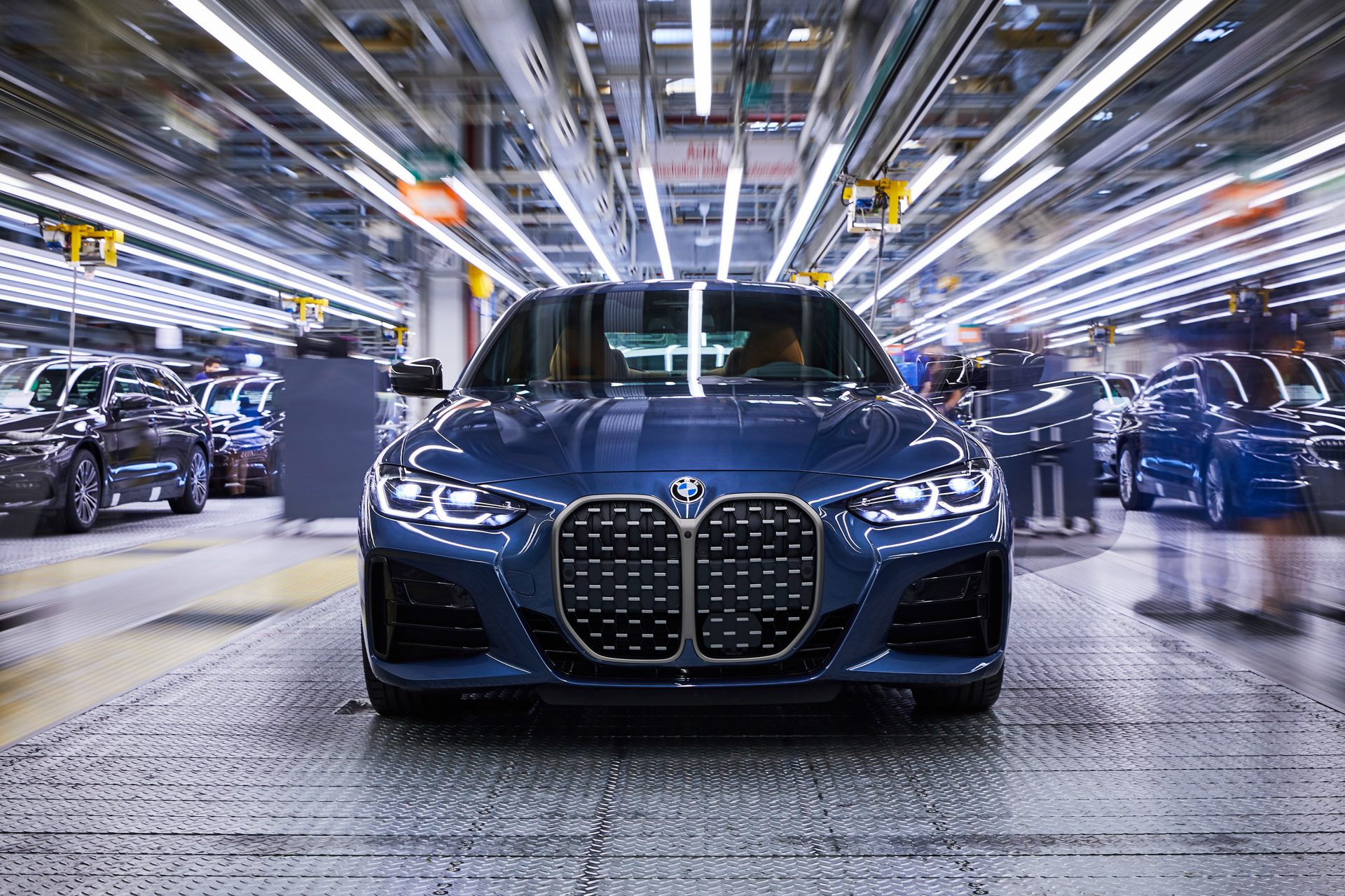
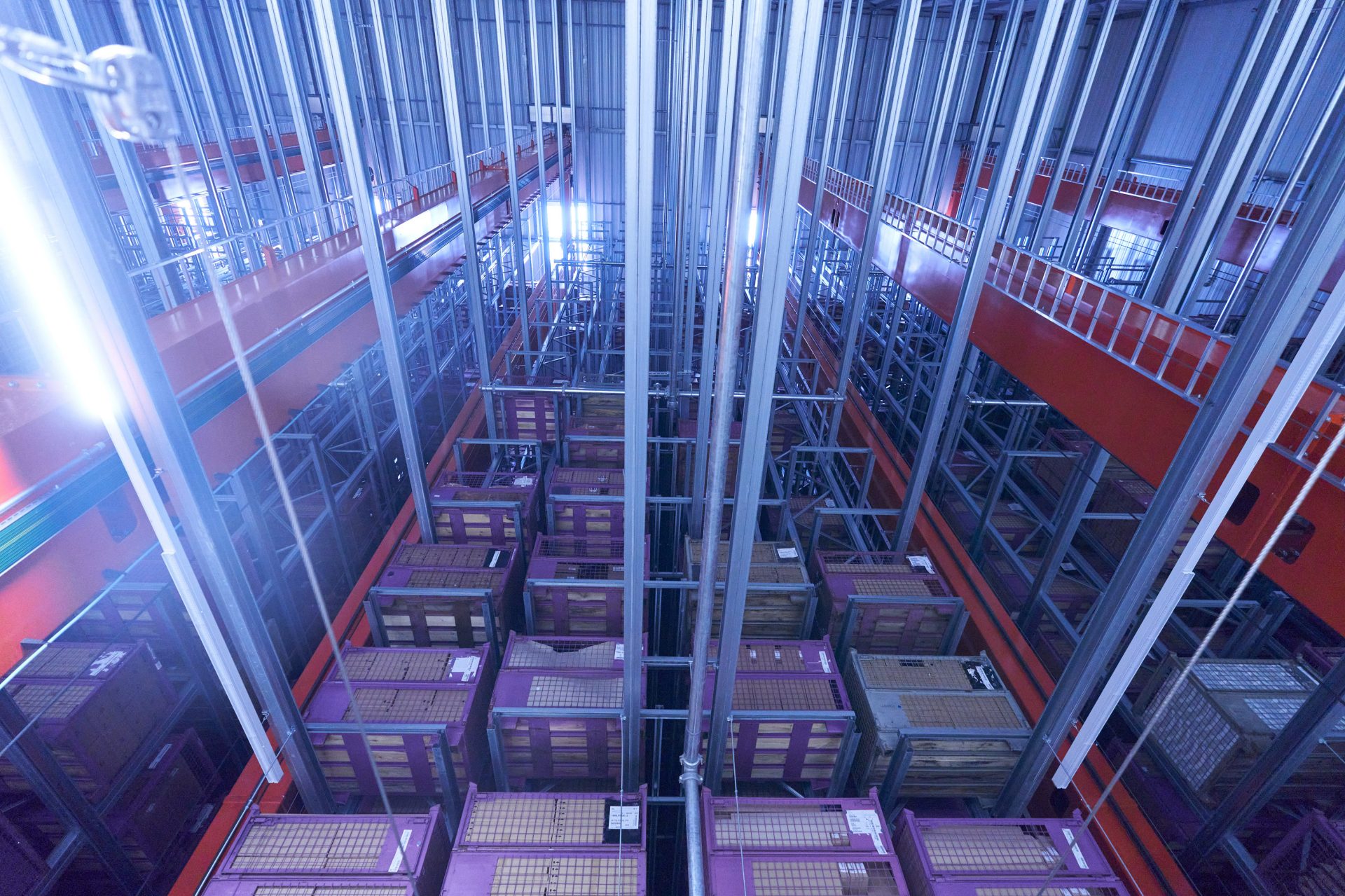
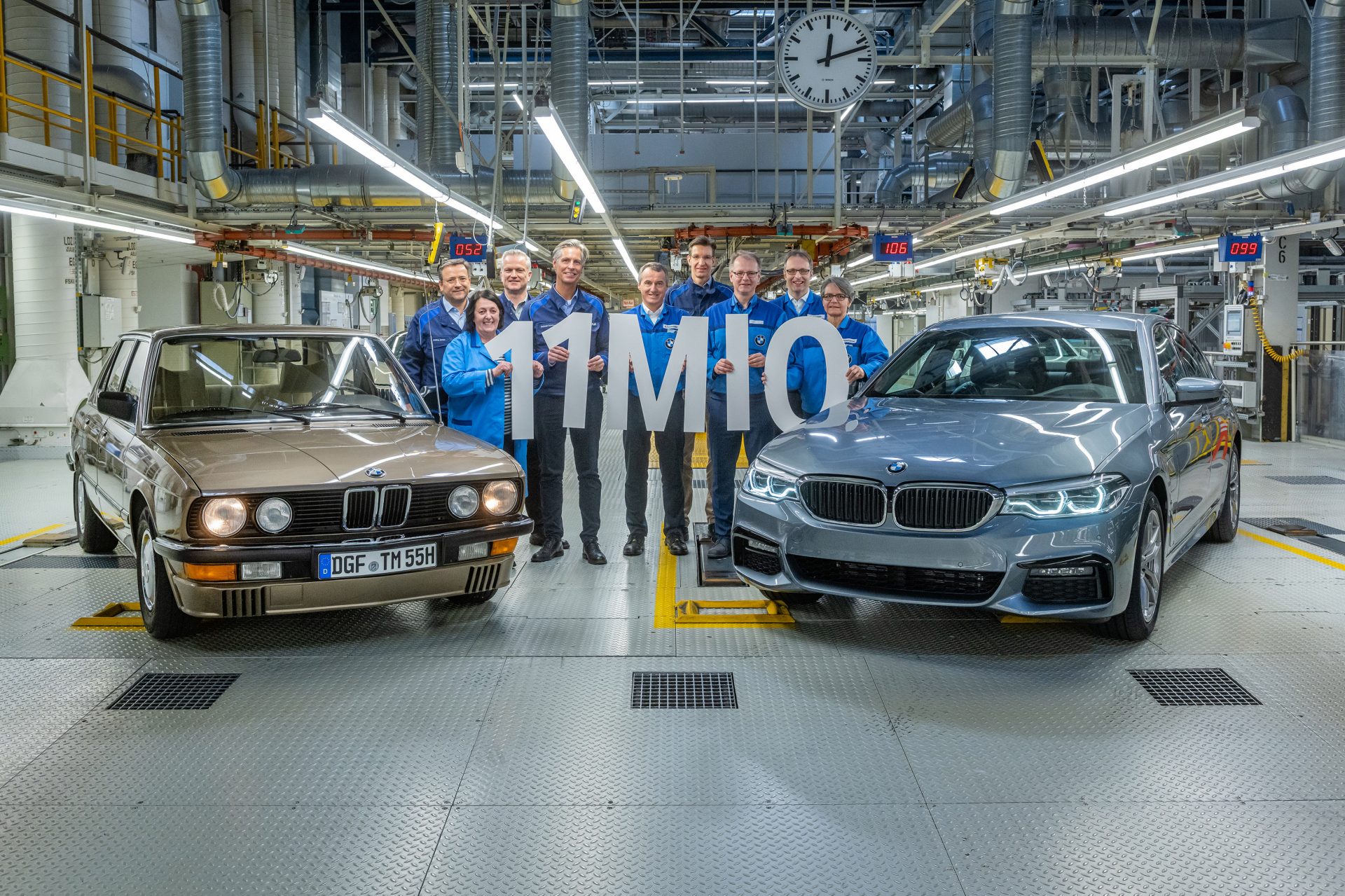
2020
The Plant celebrates its production anniversary with 11 million BMWs "made in Dingolfing". Official opening of the BMW Group Competence Center E-Drive Production at the Dingolfing plant 02.20. The new high-bay warehouse in the Dynamics Center goes into operation.
With the beginning of the Corona pandemic adjustments of vehicle production have to be made. Still, the Plant manages to start production of the following new models as plannend: BMW 4 Series Coupé, BMW 4 Series Convertible, BMW M4 Coupé, BMW 5 Series Sedan and Touring, BMW 5 Series Touring Plug-In Hybrid (BMW 530e) and 5 Series Sedan Plug-In Hybrid (BMW 545e), BMW M5 and BMW 6 Series Gran Turismo.
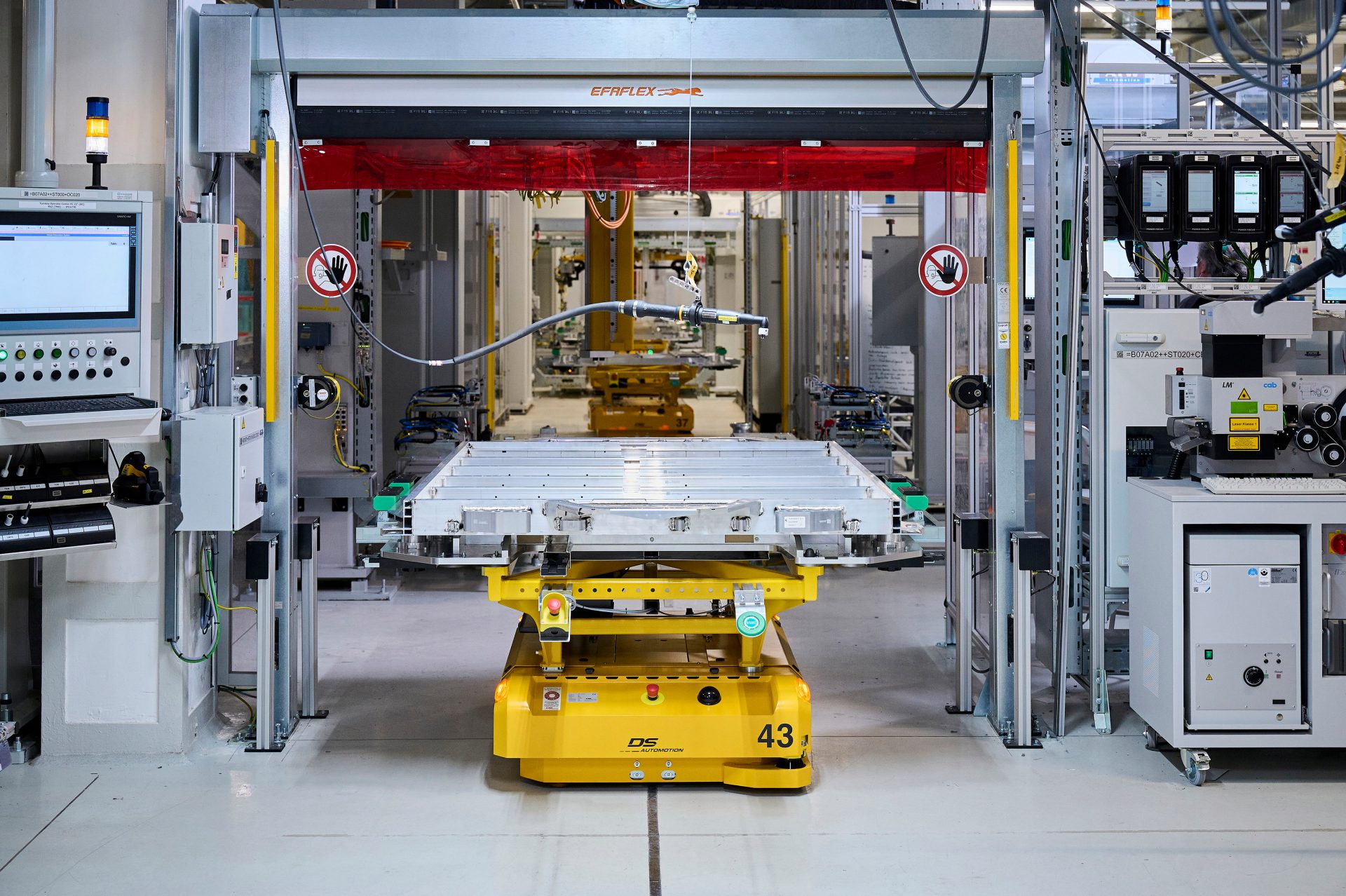

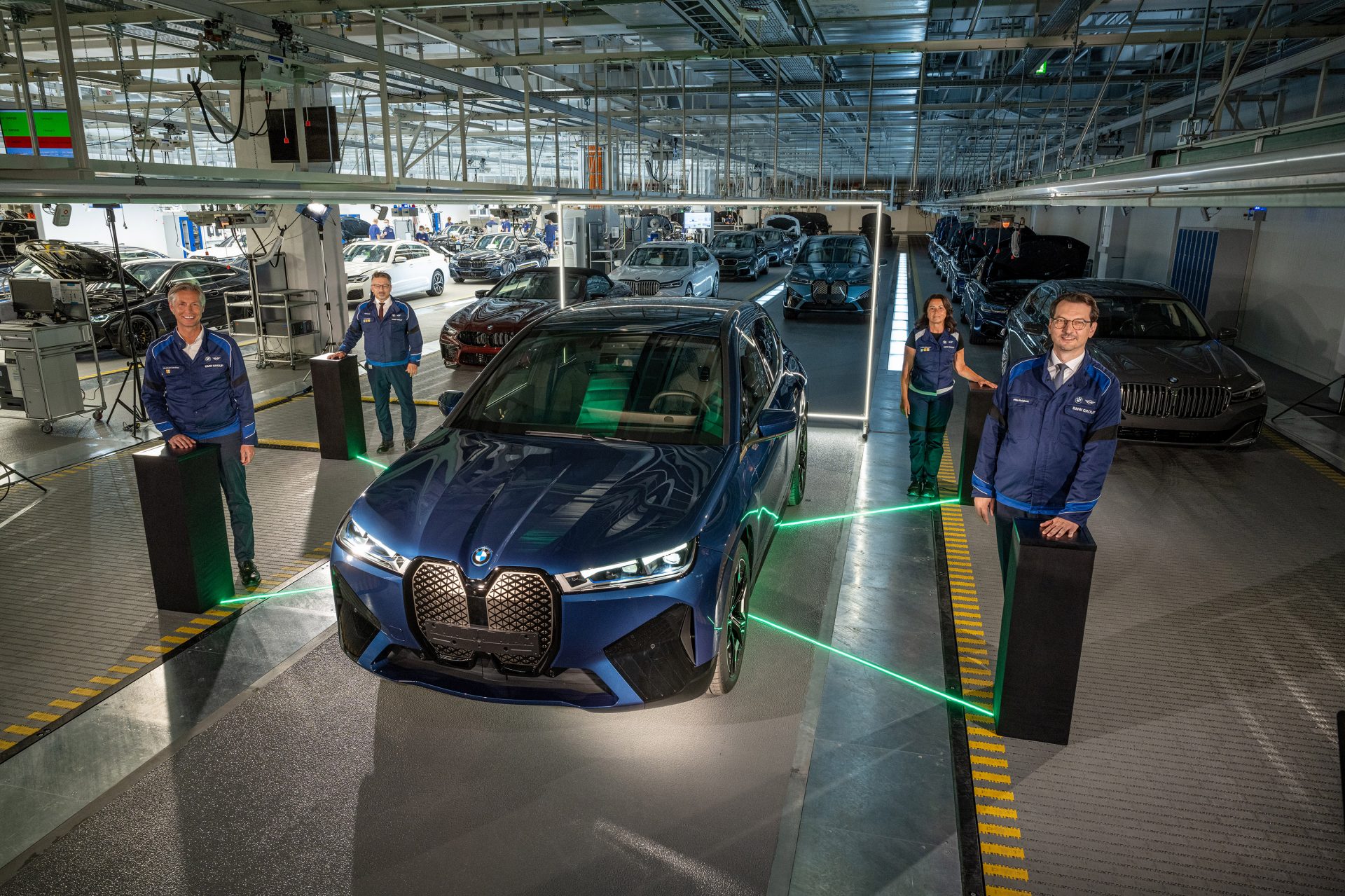
2021
Start of production of the technology flagship BMW iX as well as the BMW M5 CS, BMW 520e (Sedan and Touring) and BMW M4 Competition Convertible. The last BMW 3 Series GT (end of production) and last BMW 4 Series Gran Coupé (new model built at Plant Munich) roll off the production line. Partial commissioning of major project ZSML for future-proof structures in Assembly and Logistics. Production of different drive systems (internal combustion, plug-in-hybrid and electric vehicles) on the same production line.
Opening of a Sustainability Mile at the main entrance with an overview of all the plant's sustainability activities. Health services at BMW Group Plant Dingolfing participate in the German government's Covid-19 vaccination campaign.
